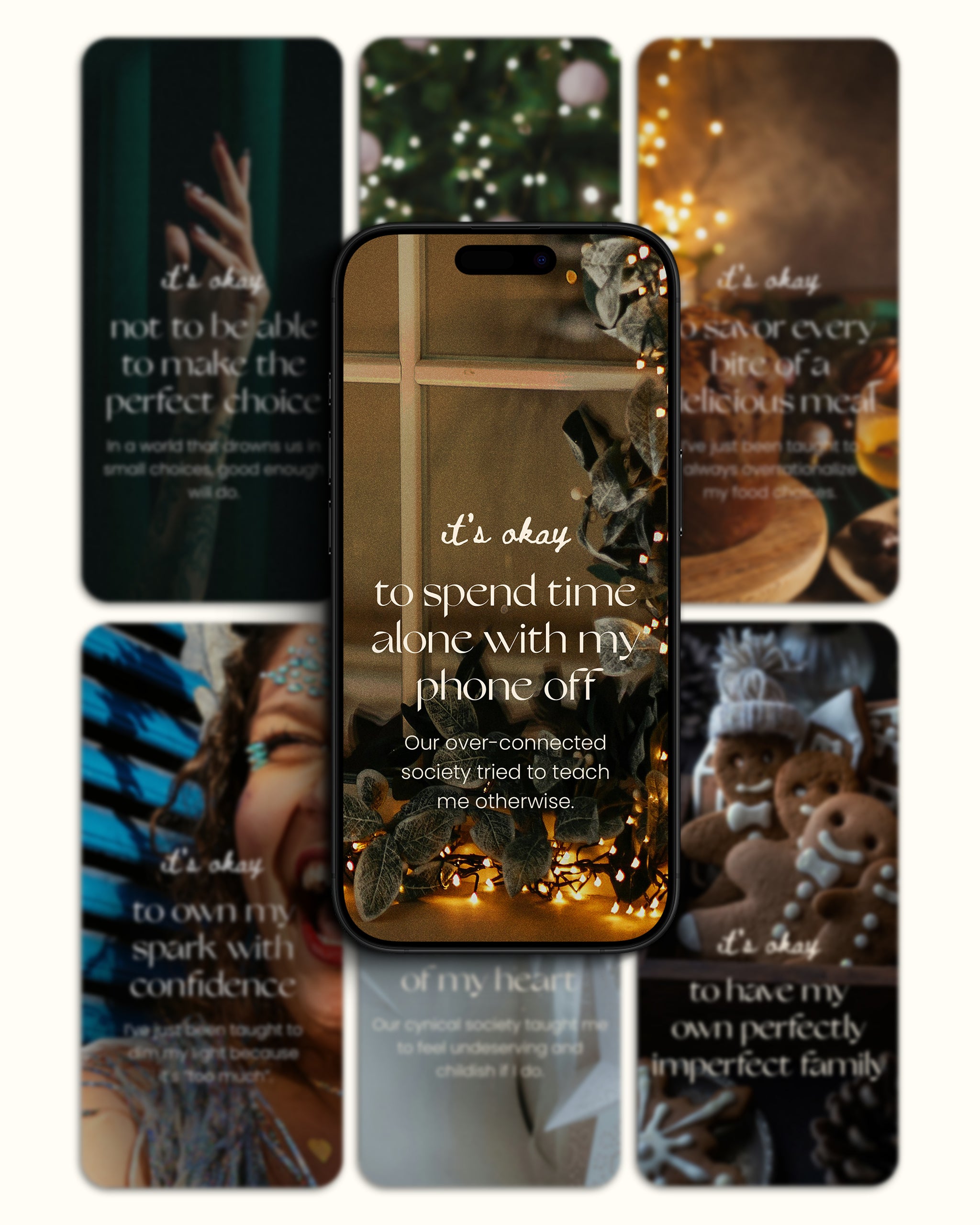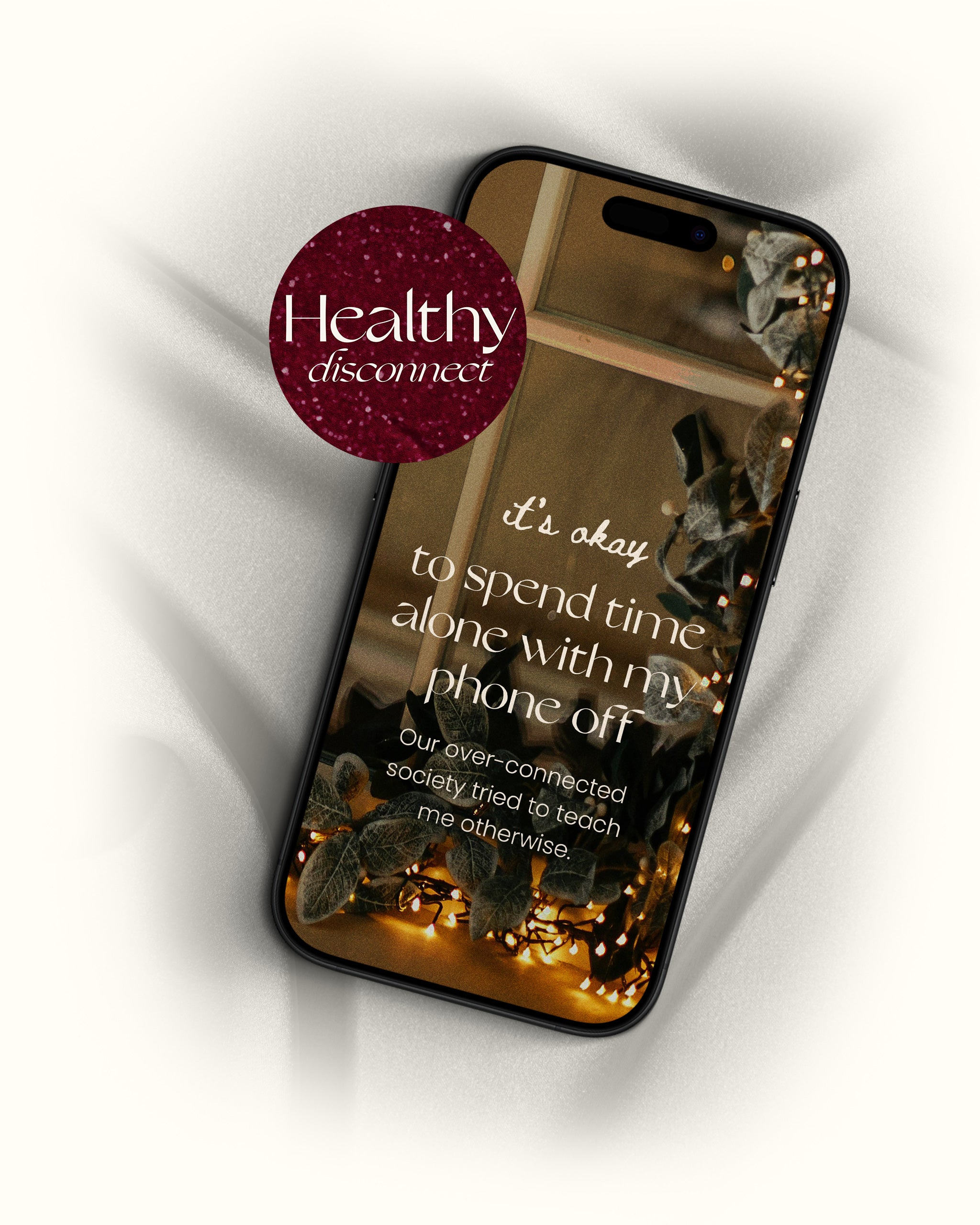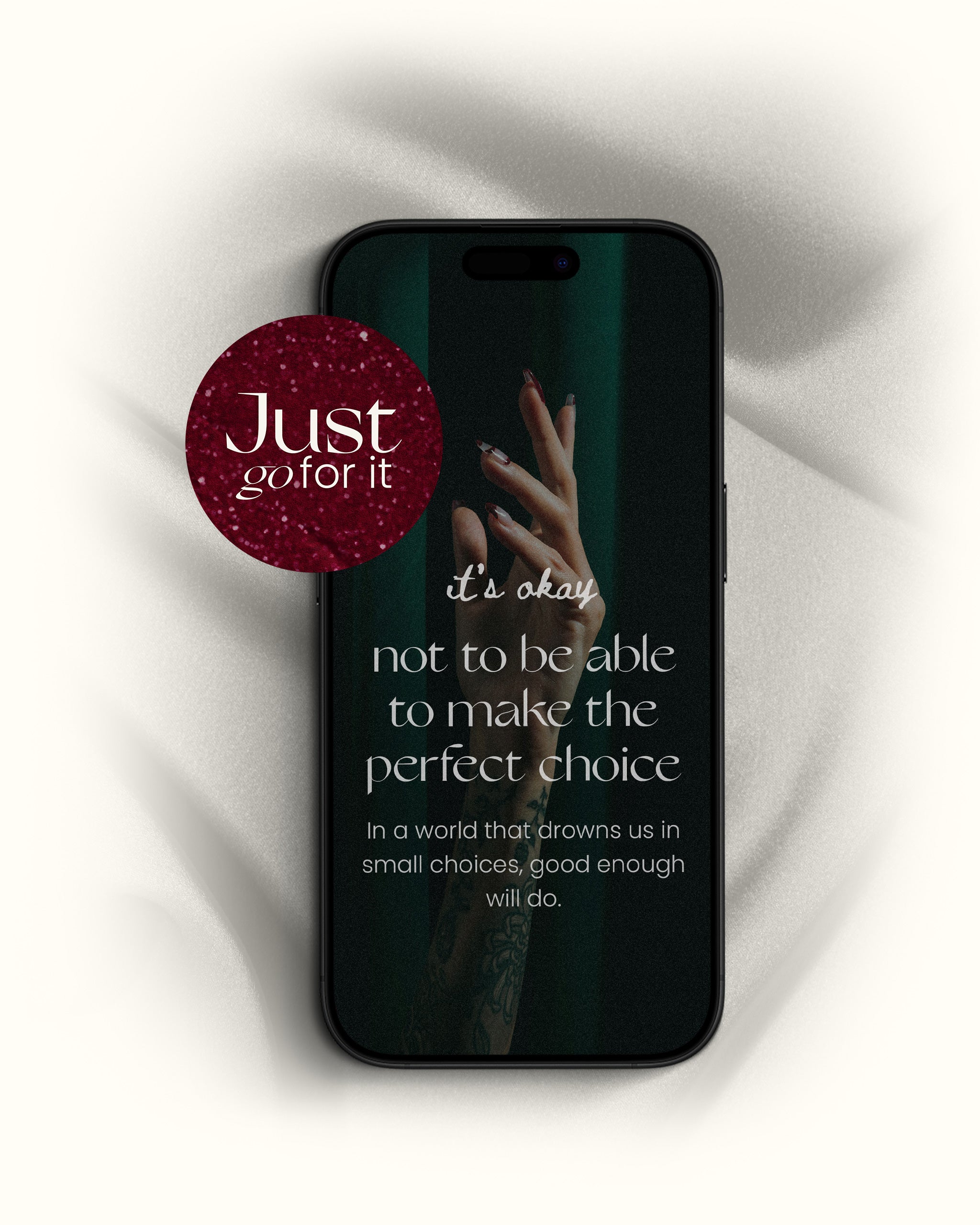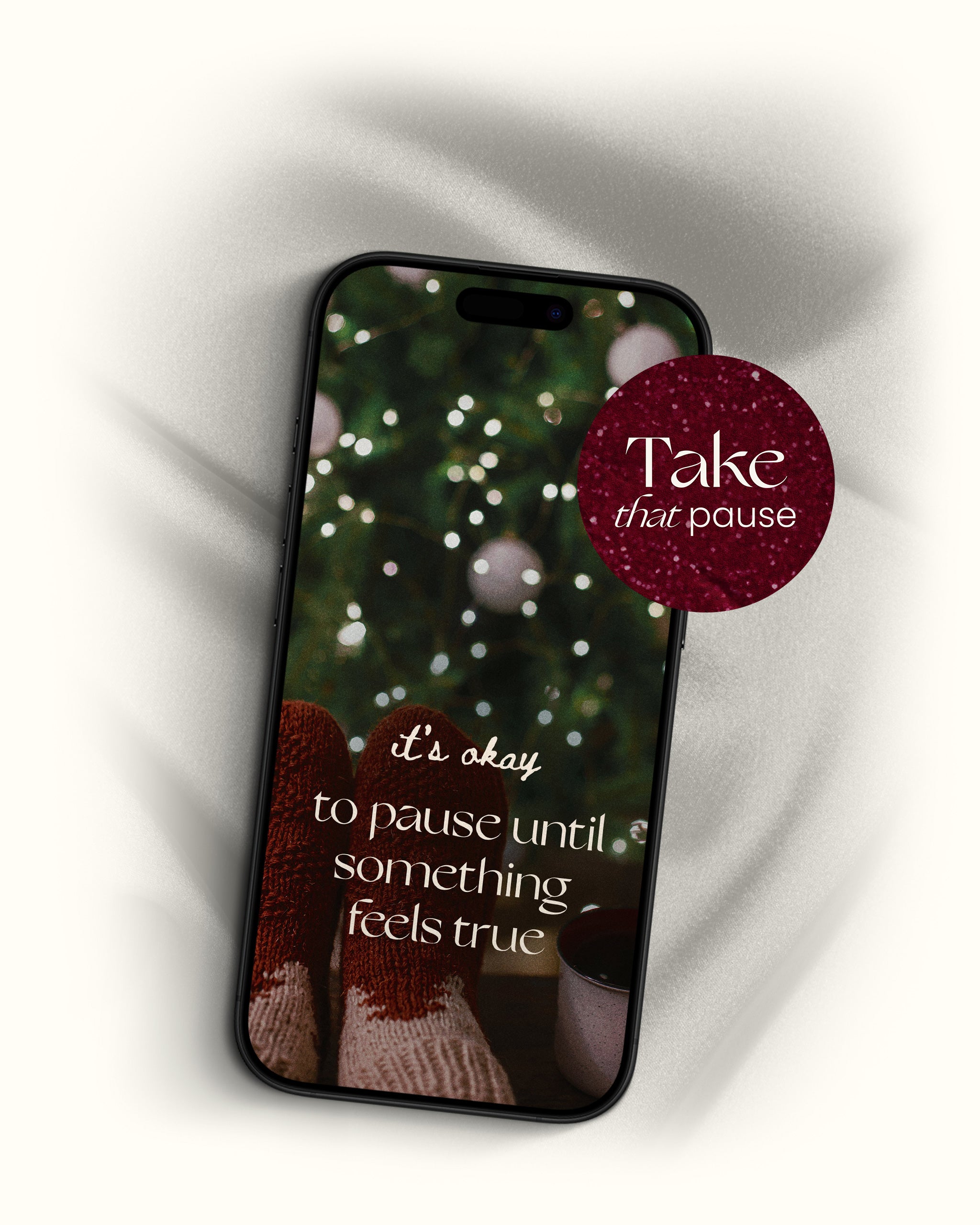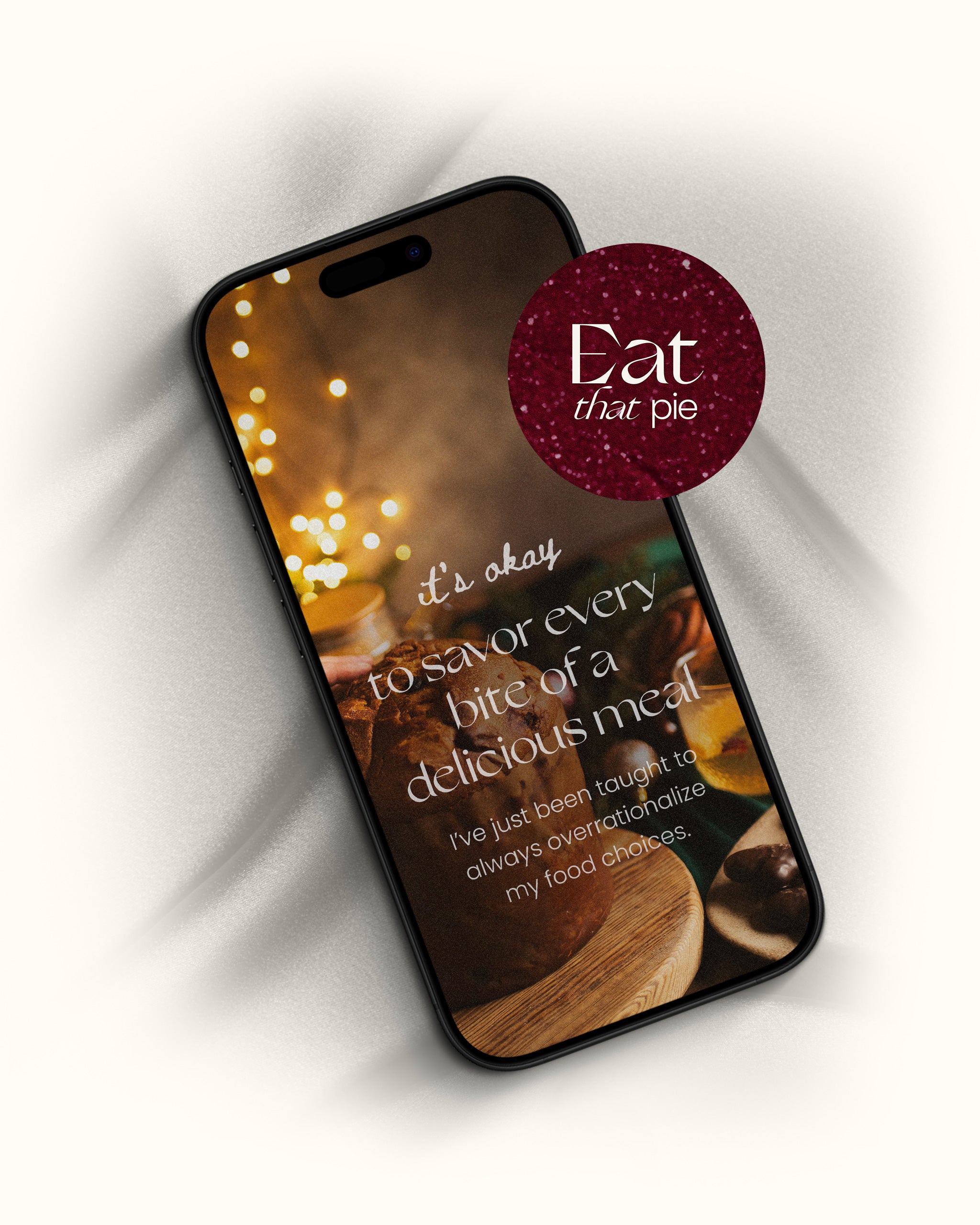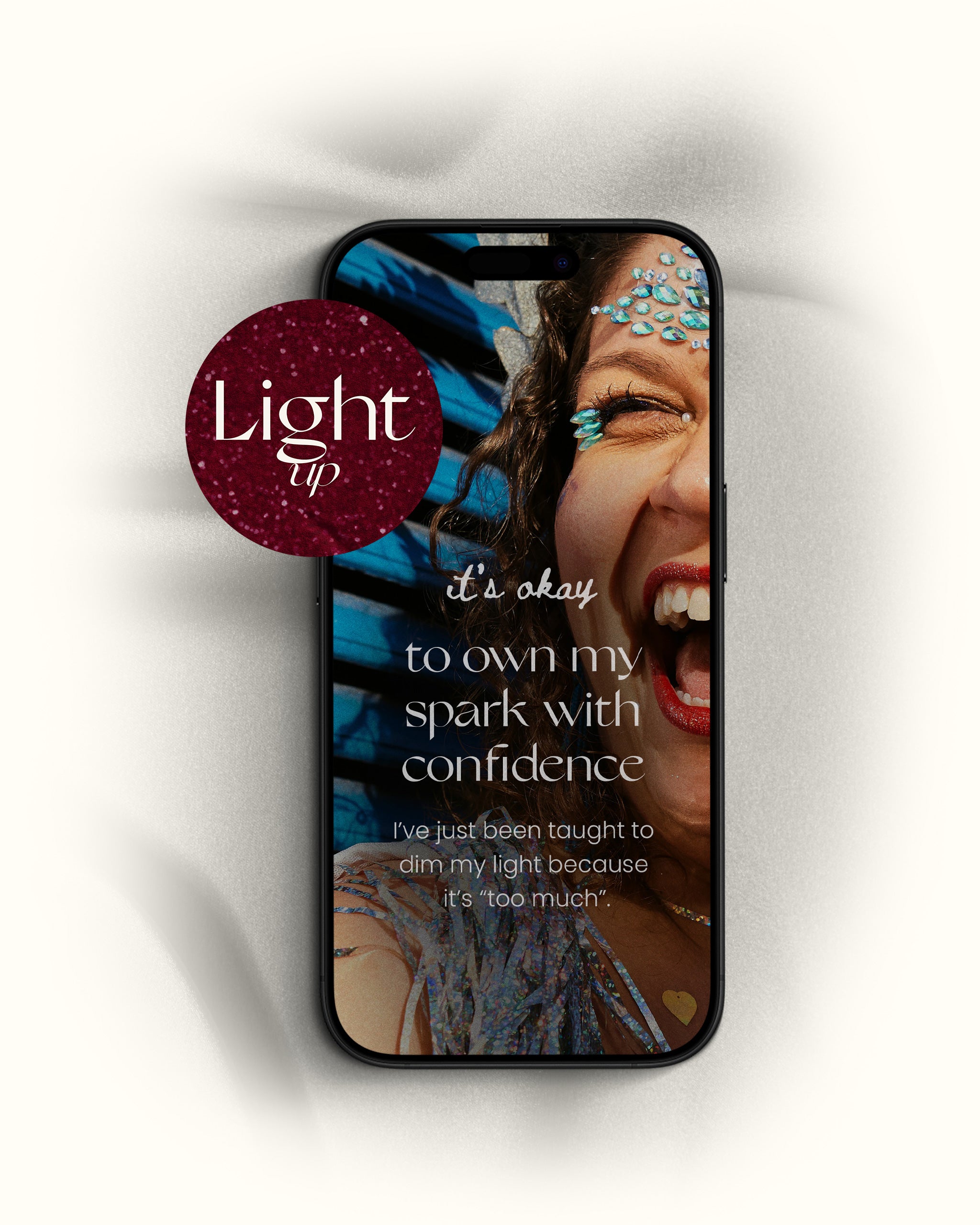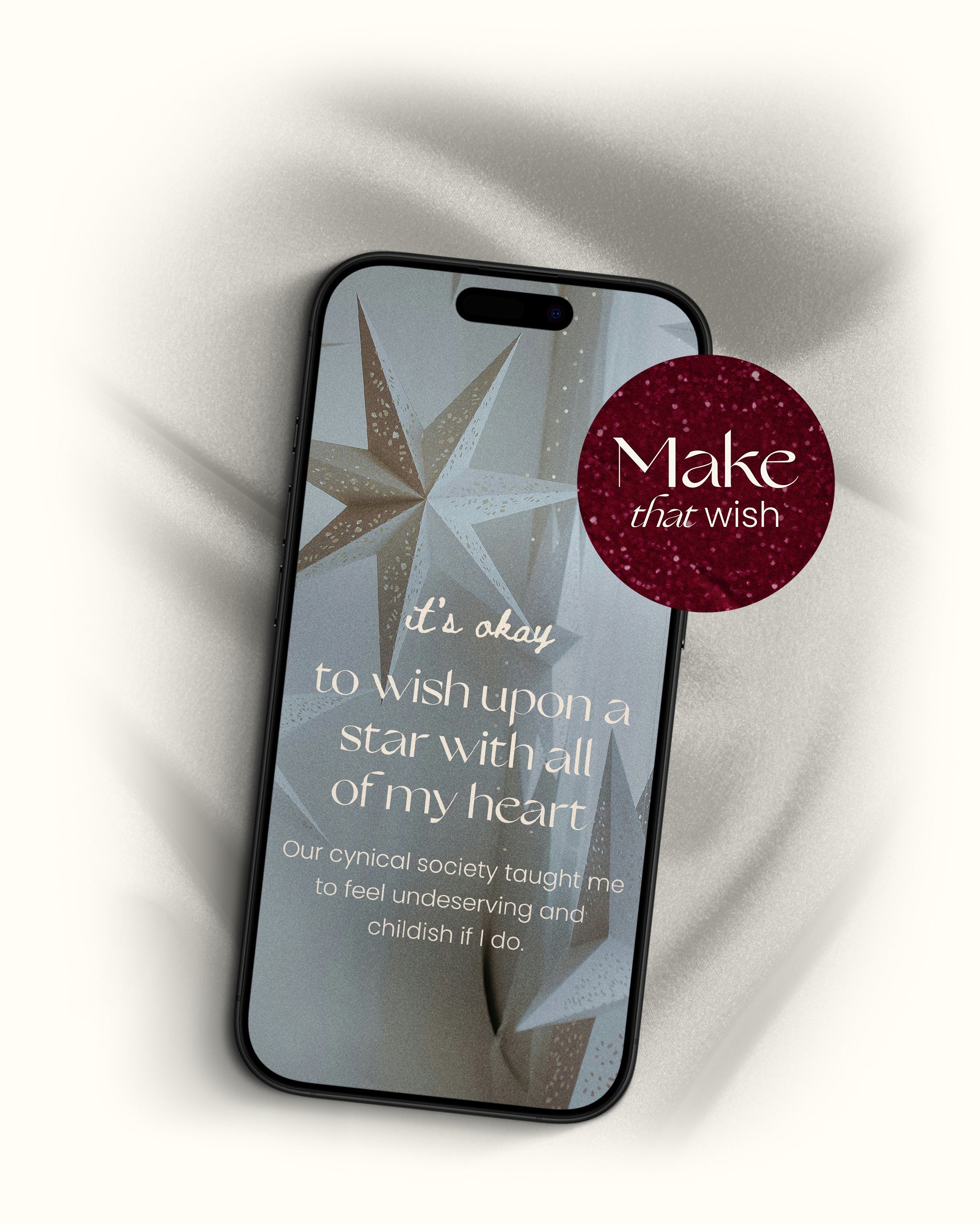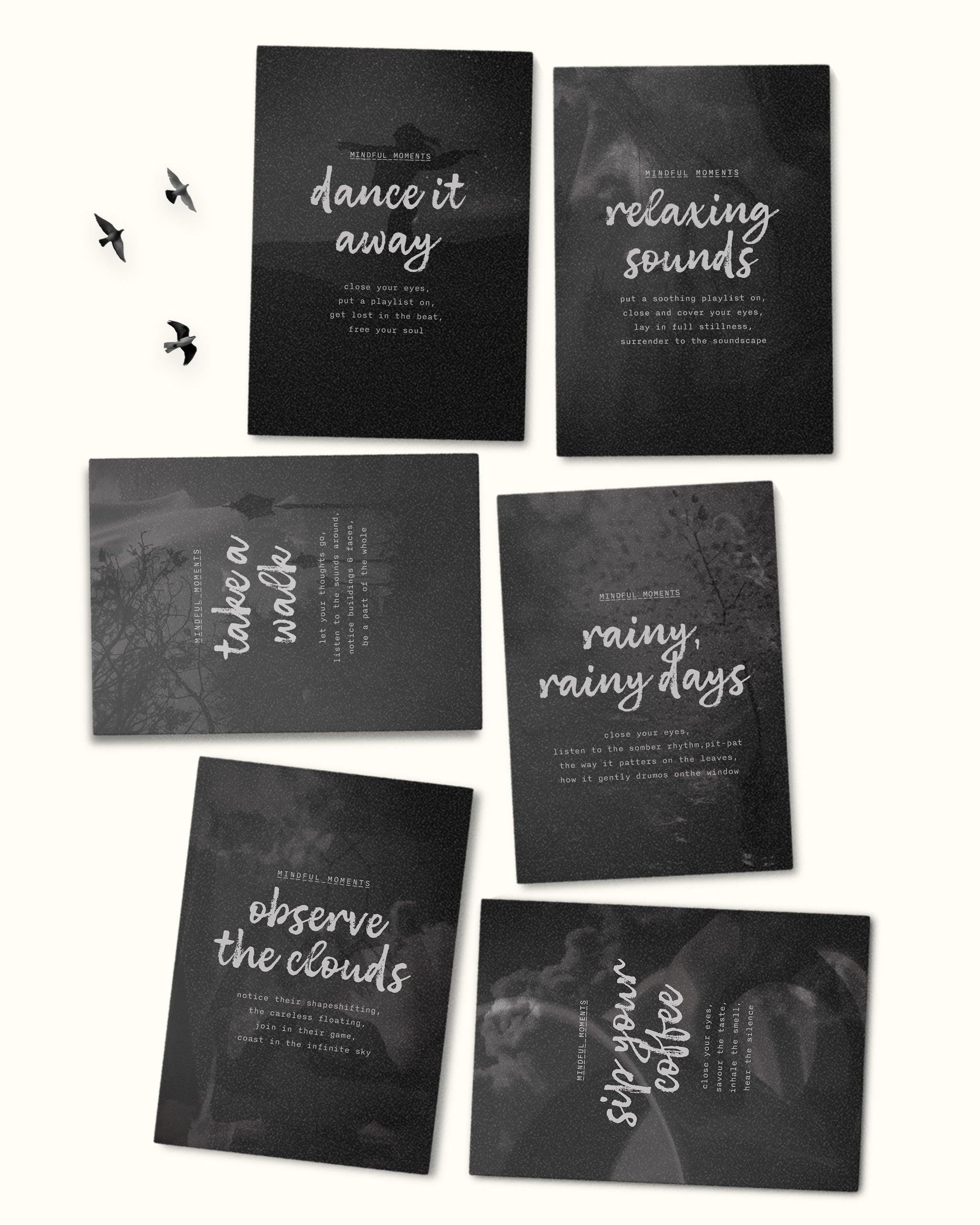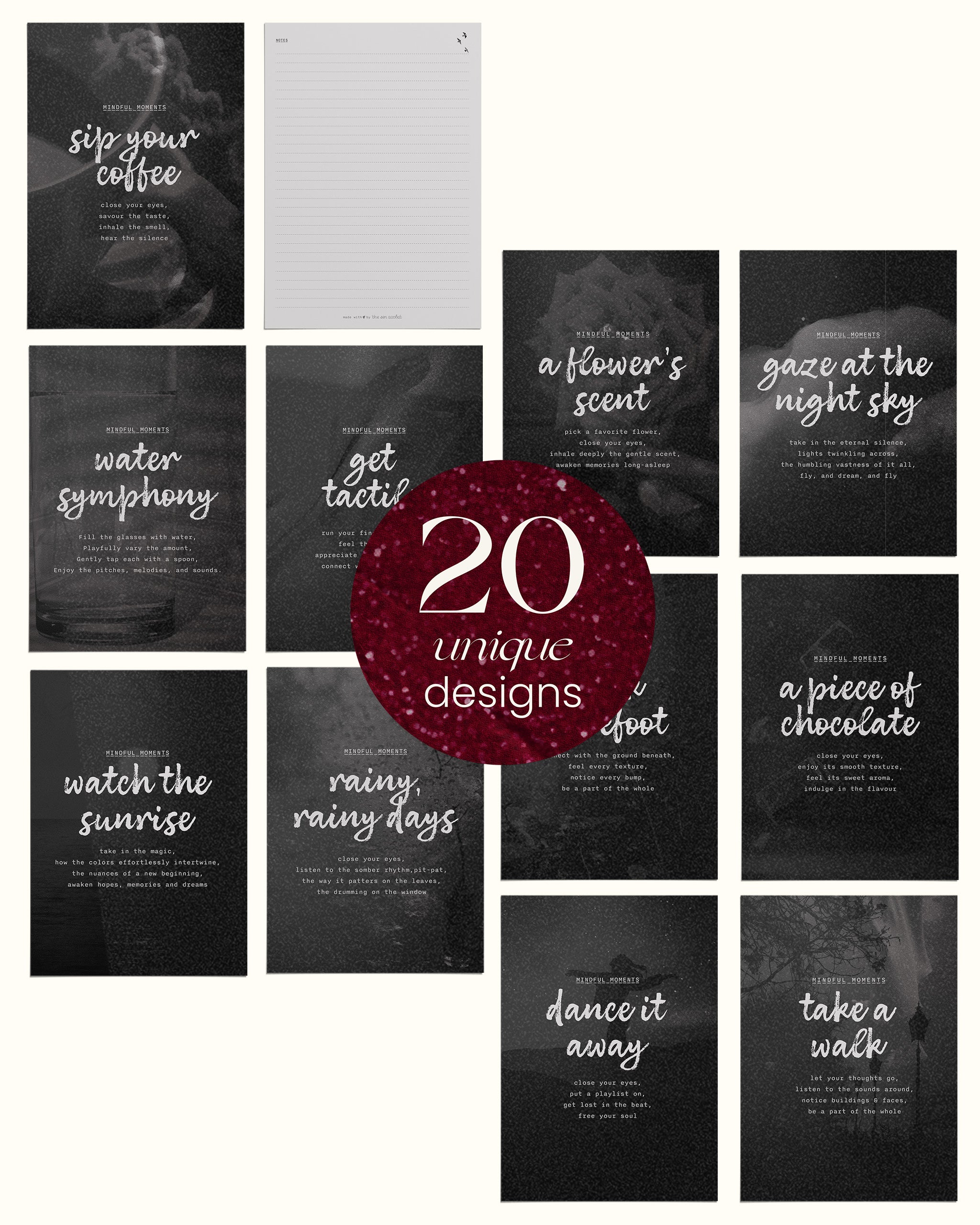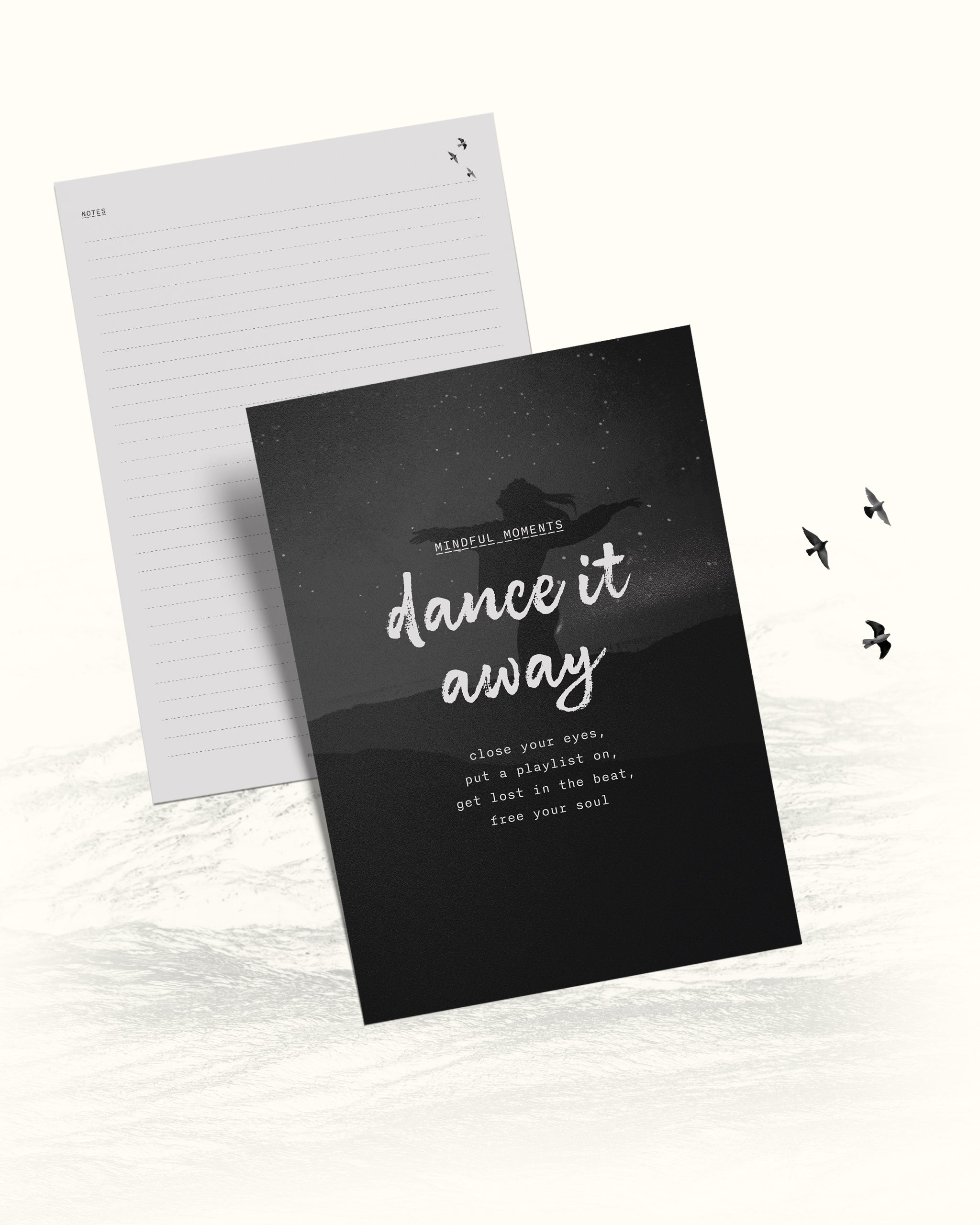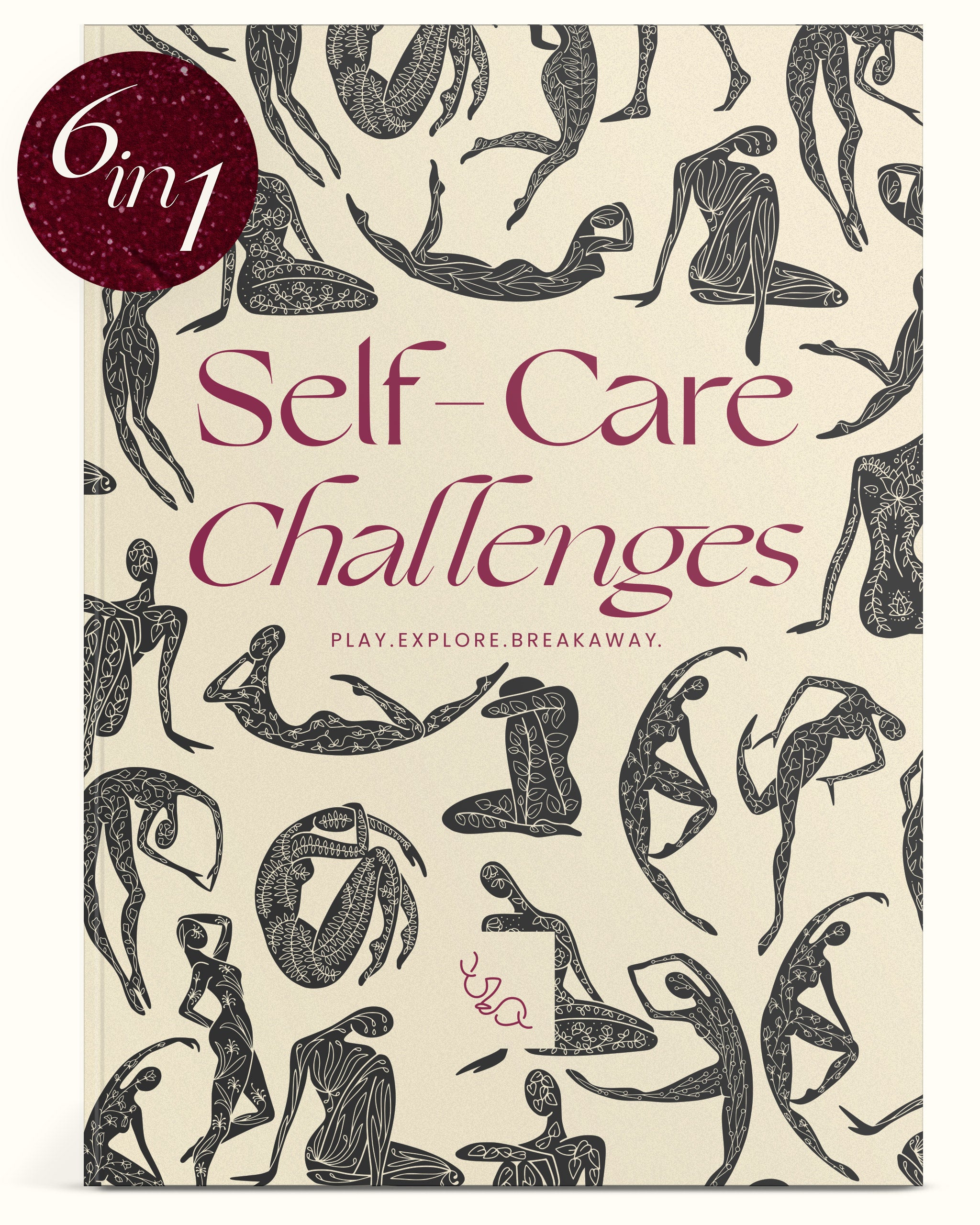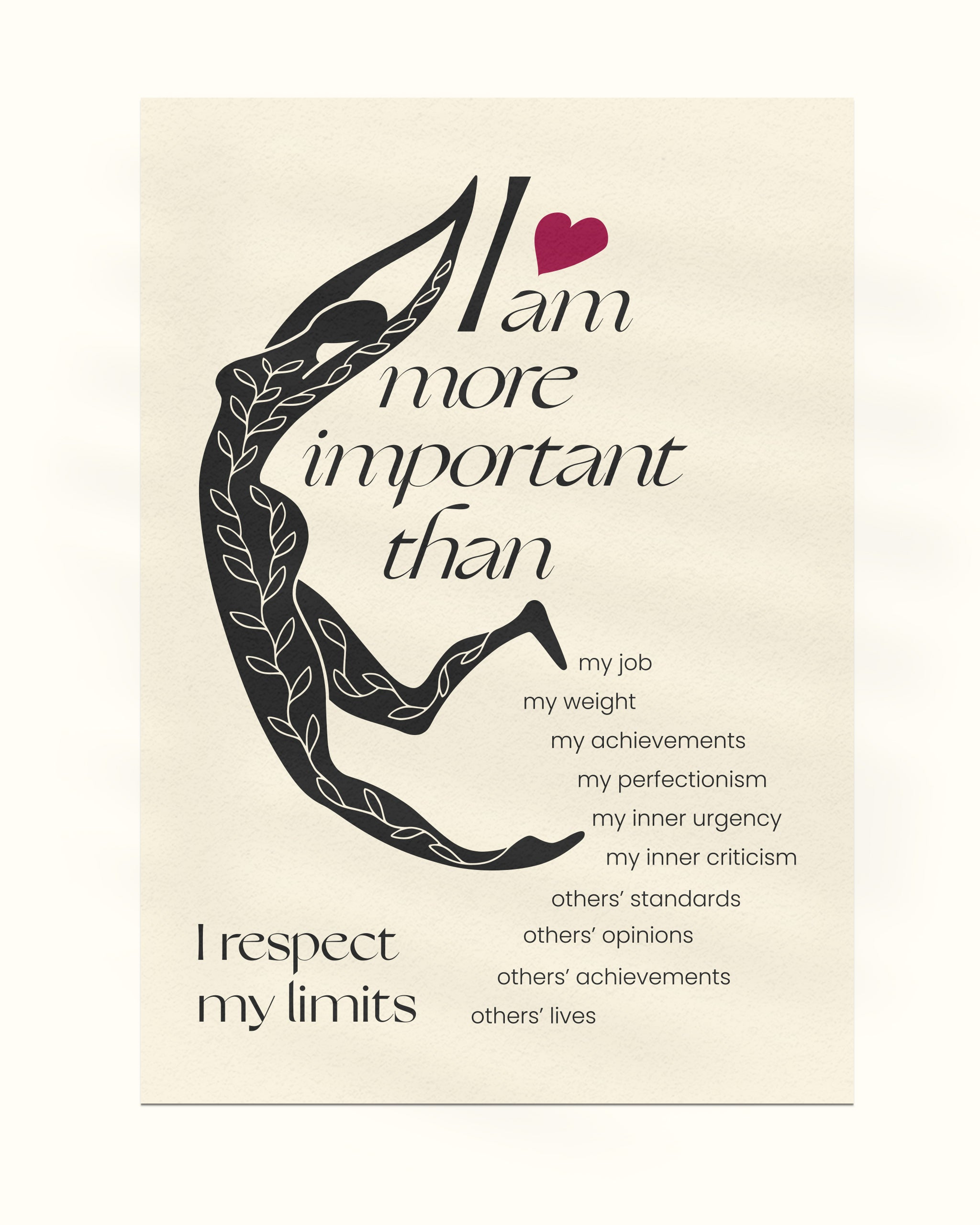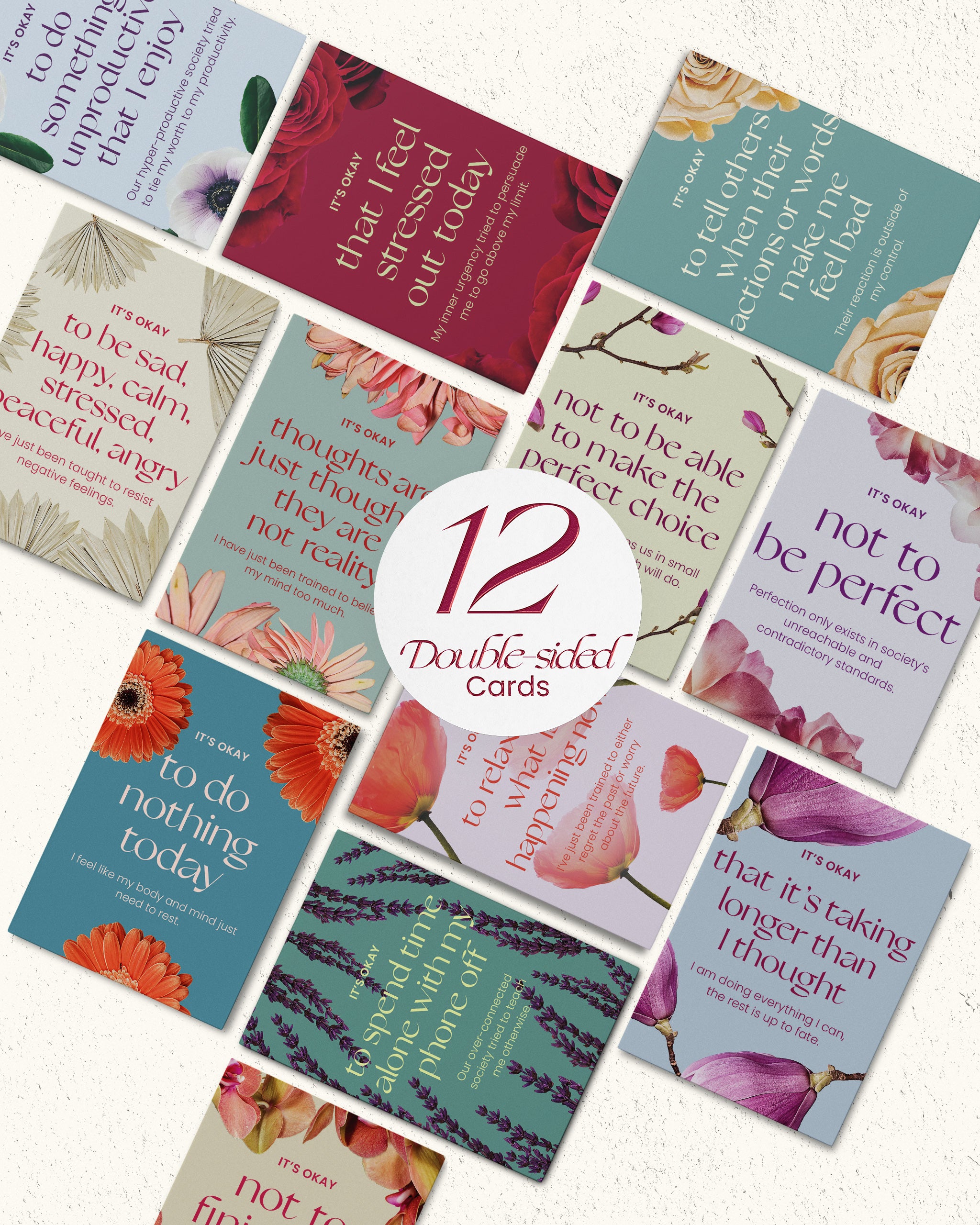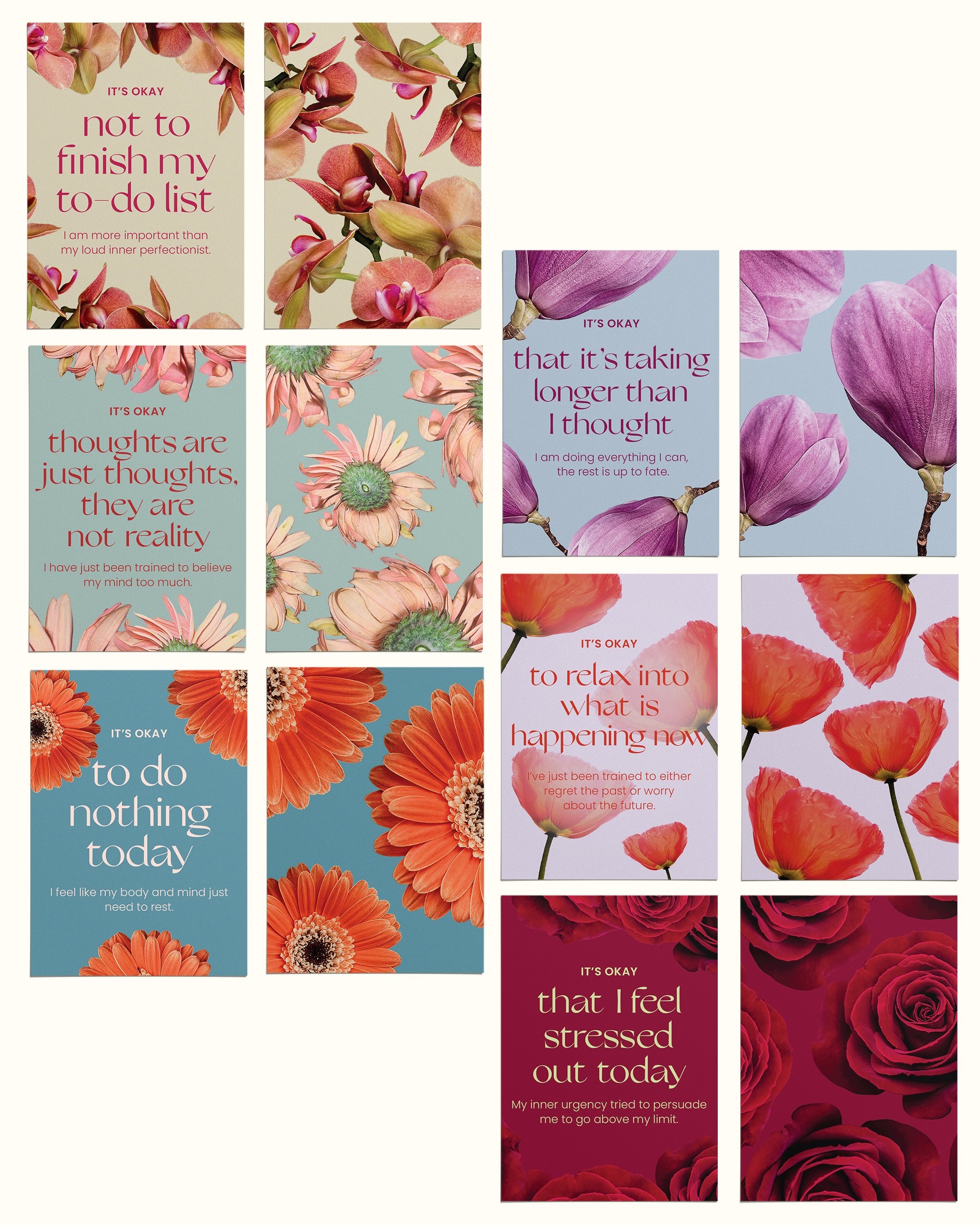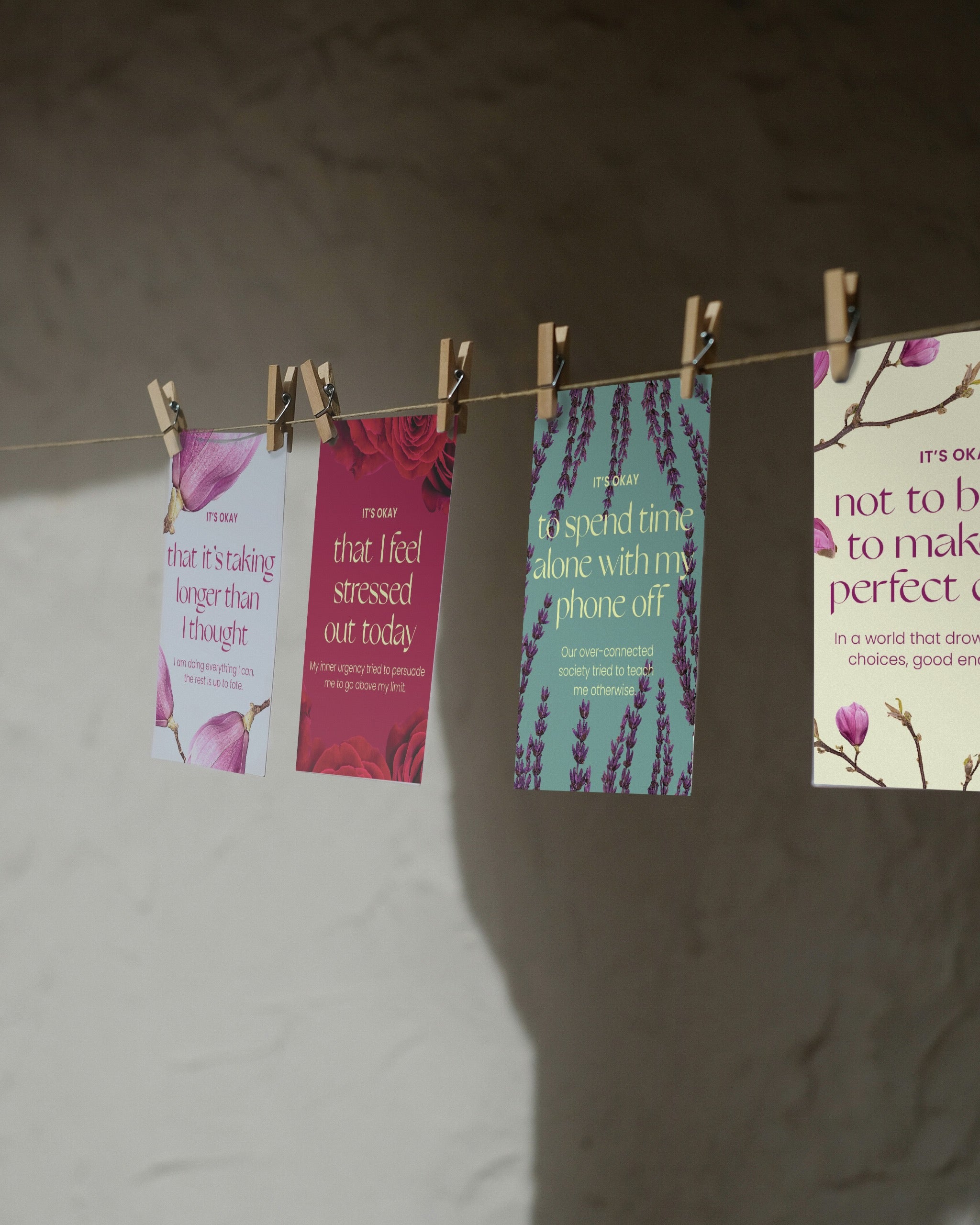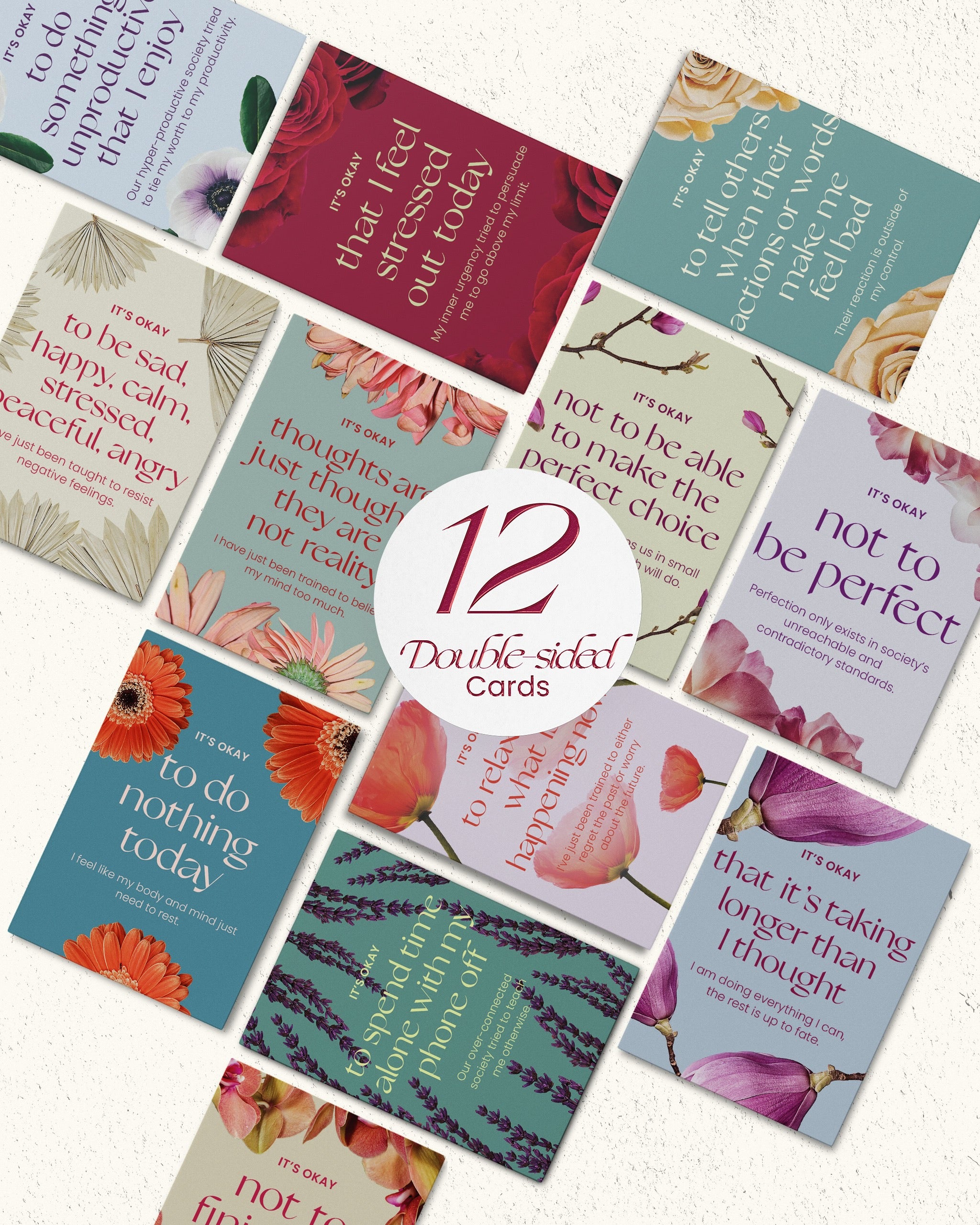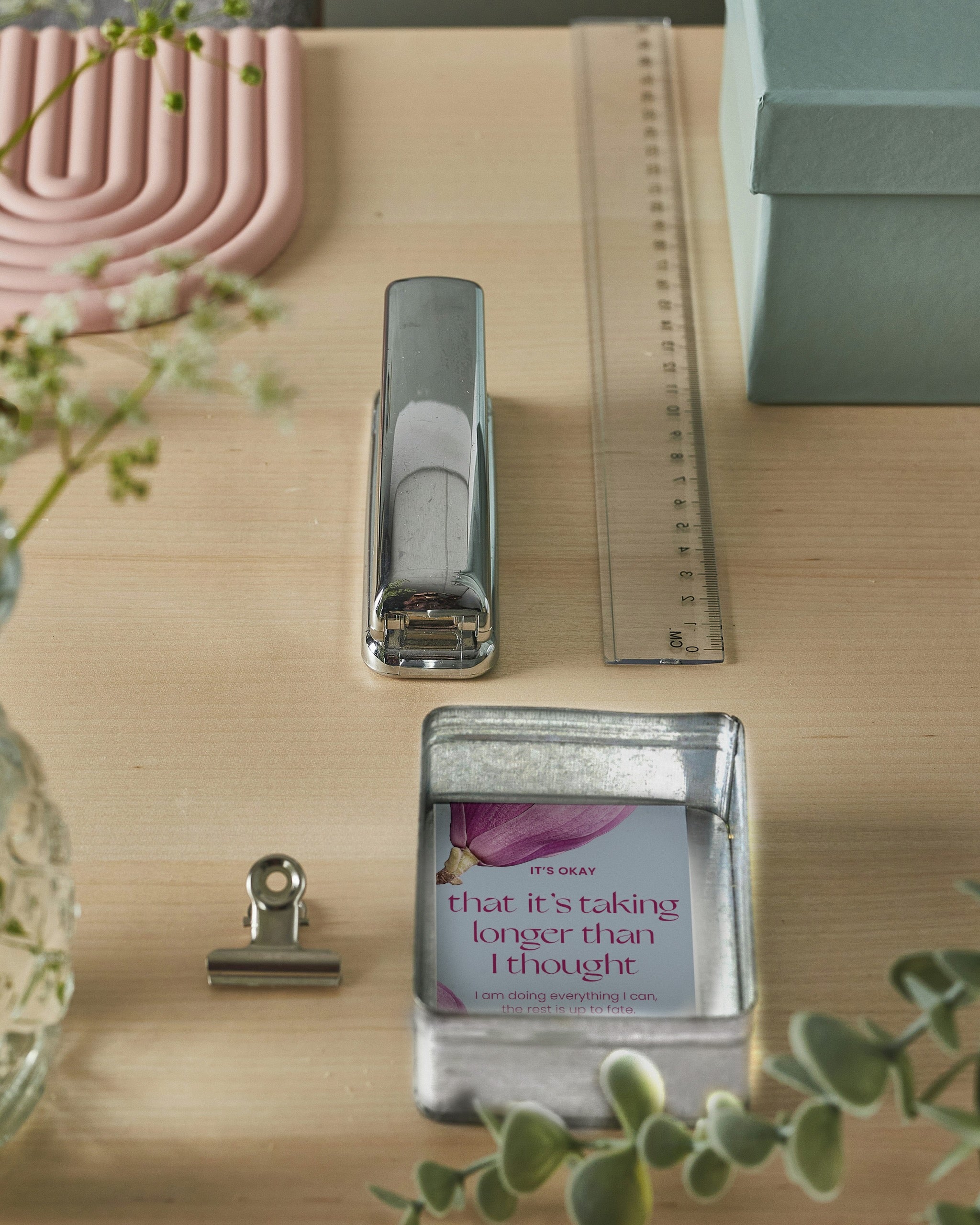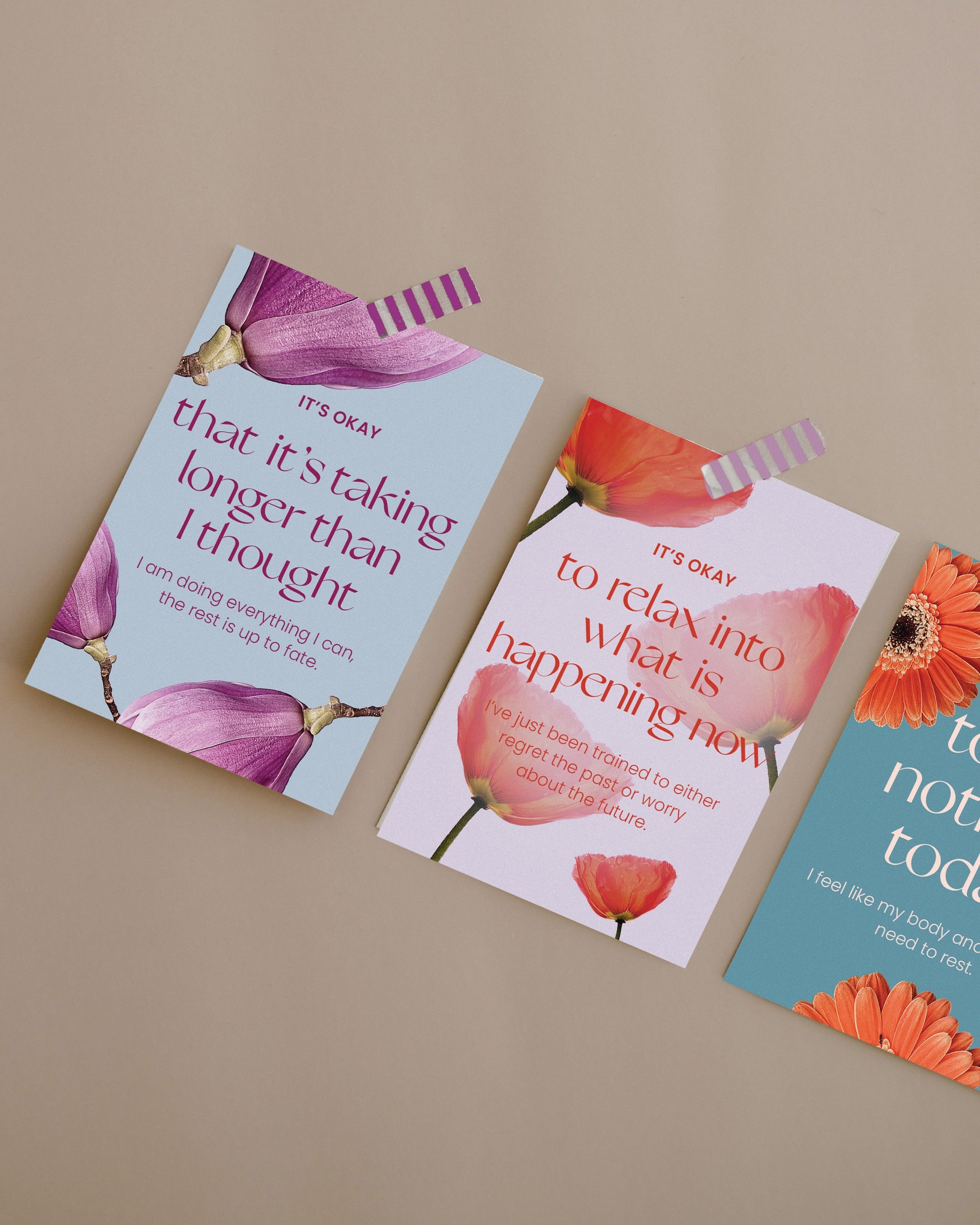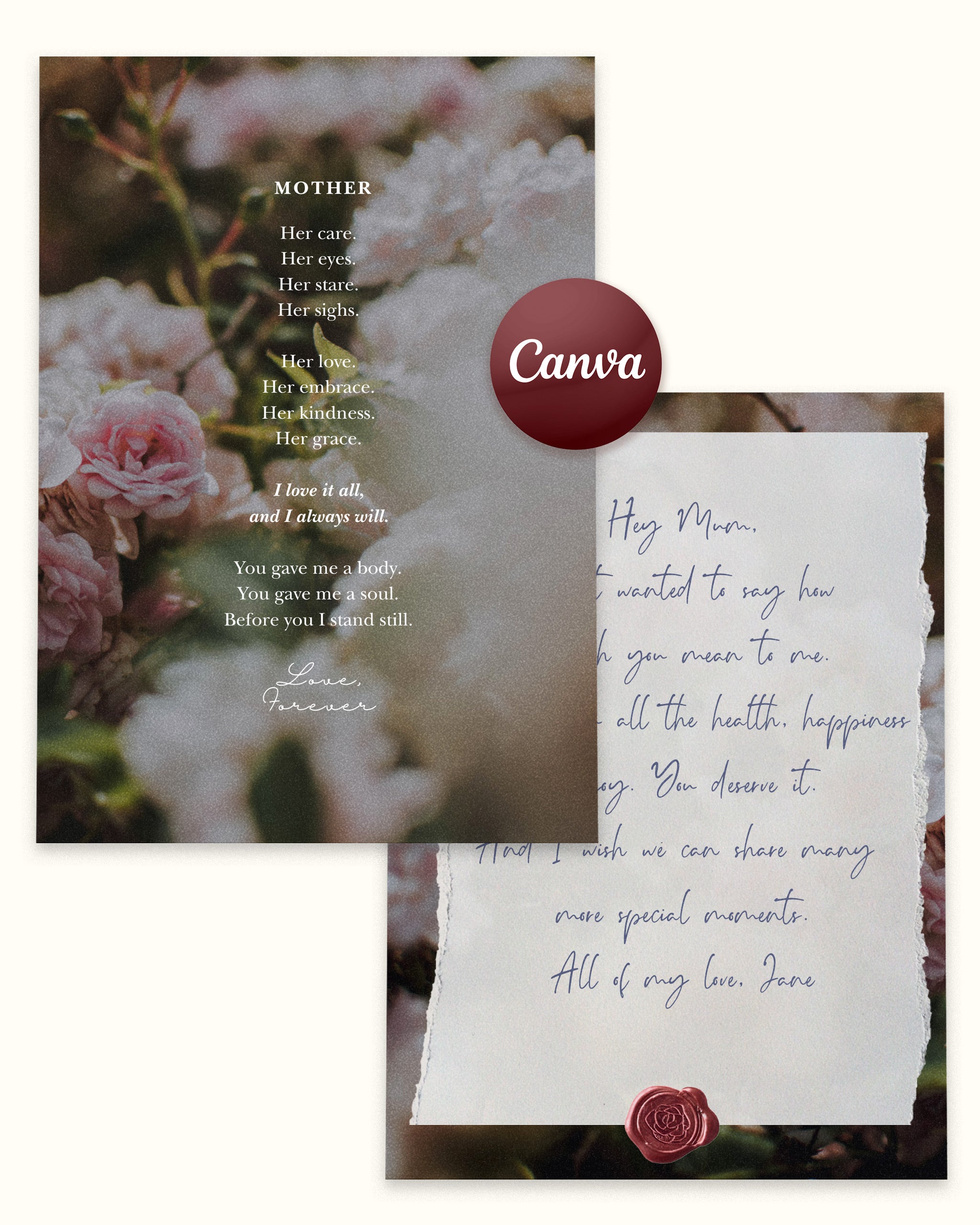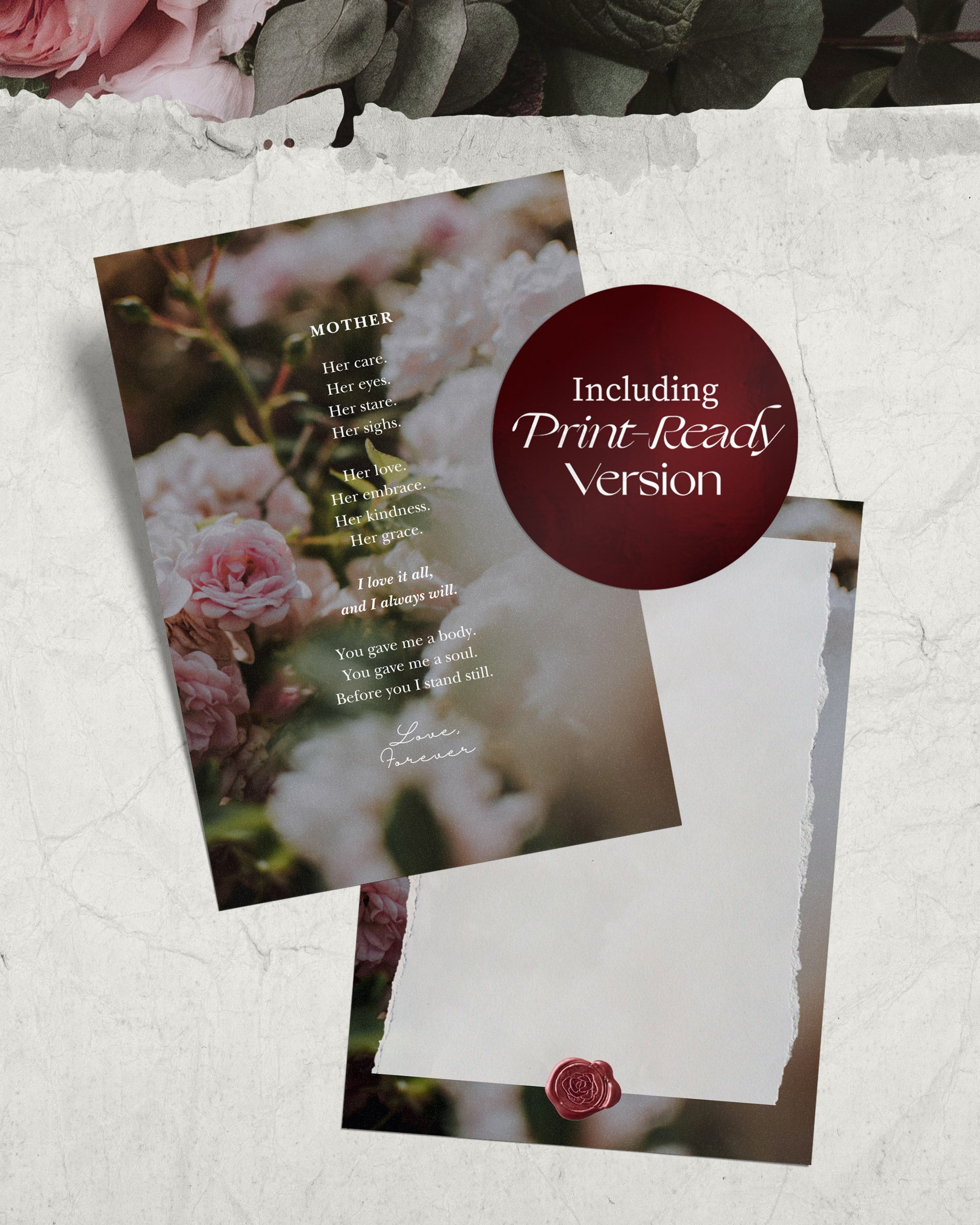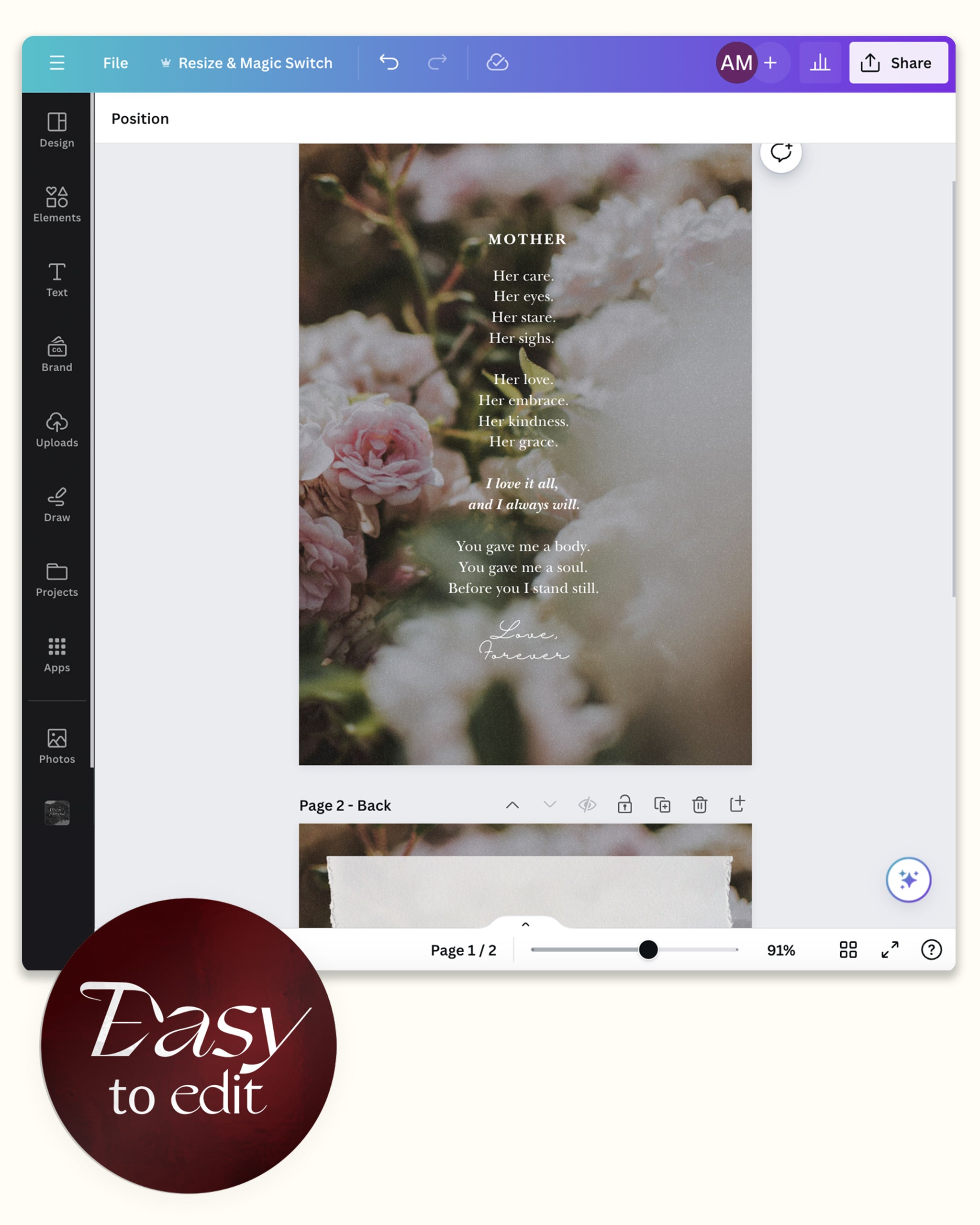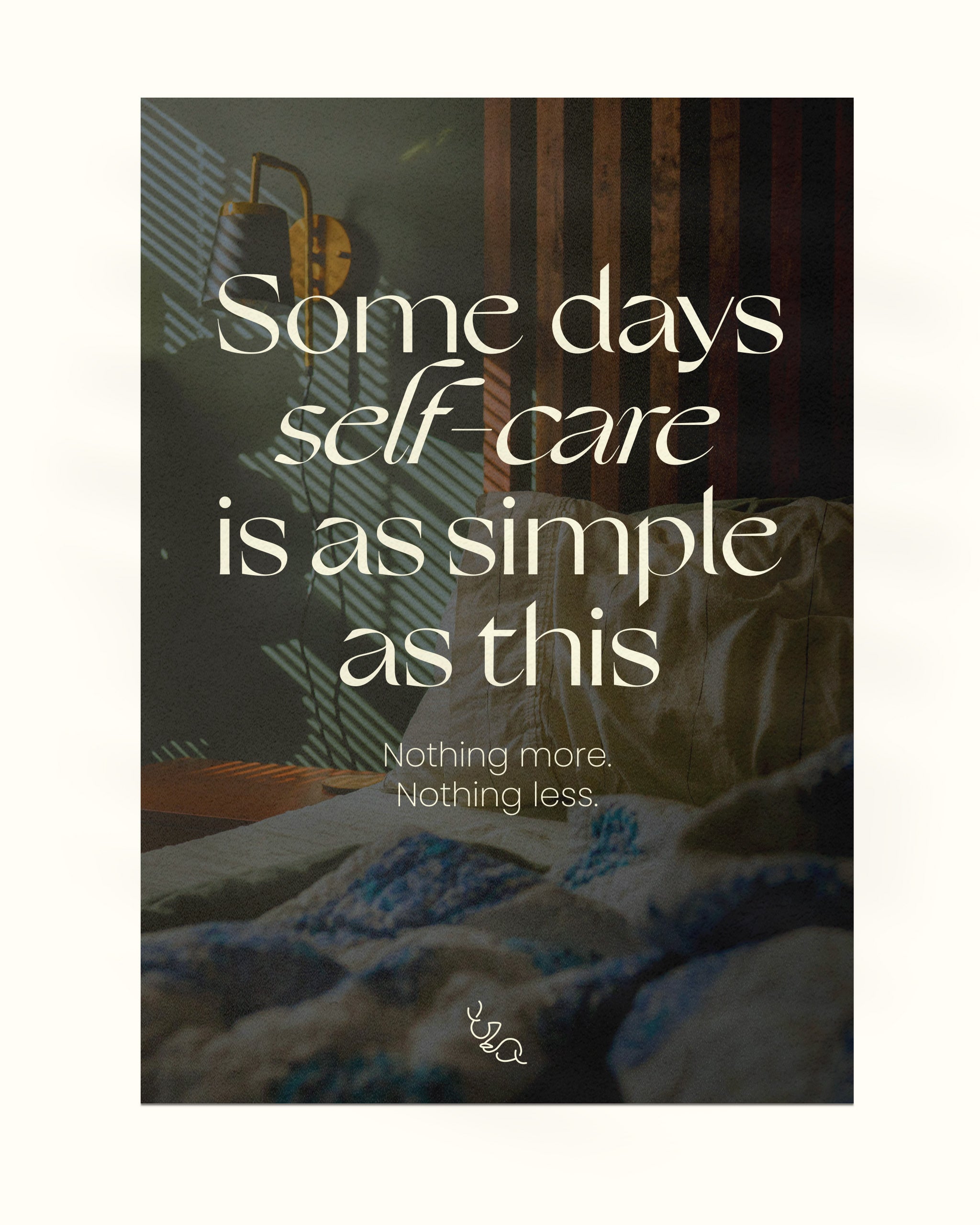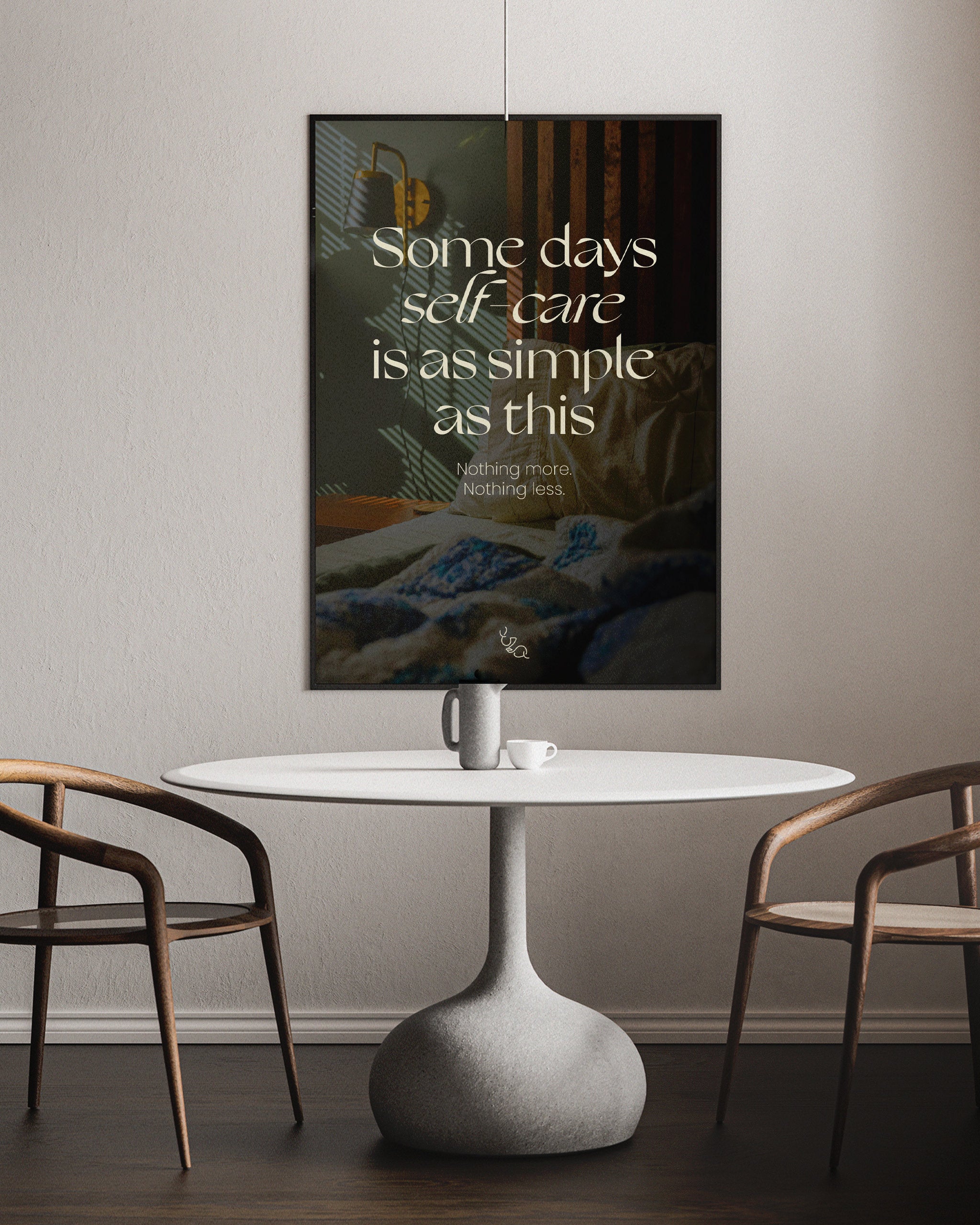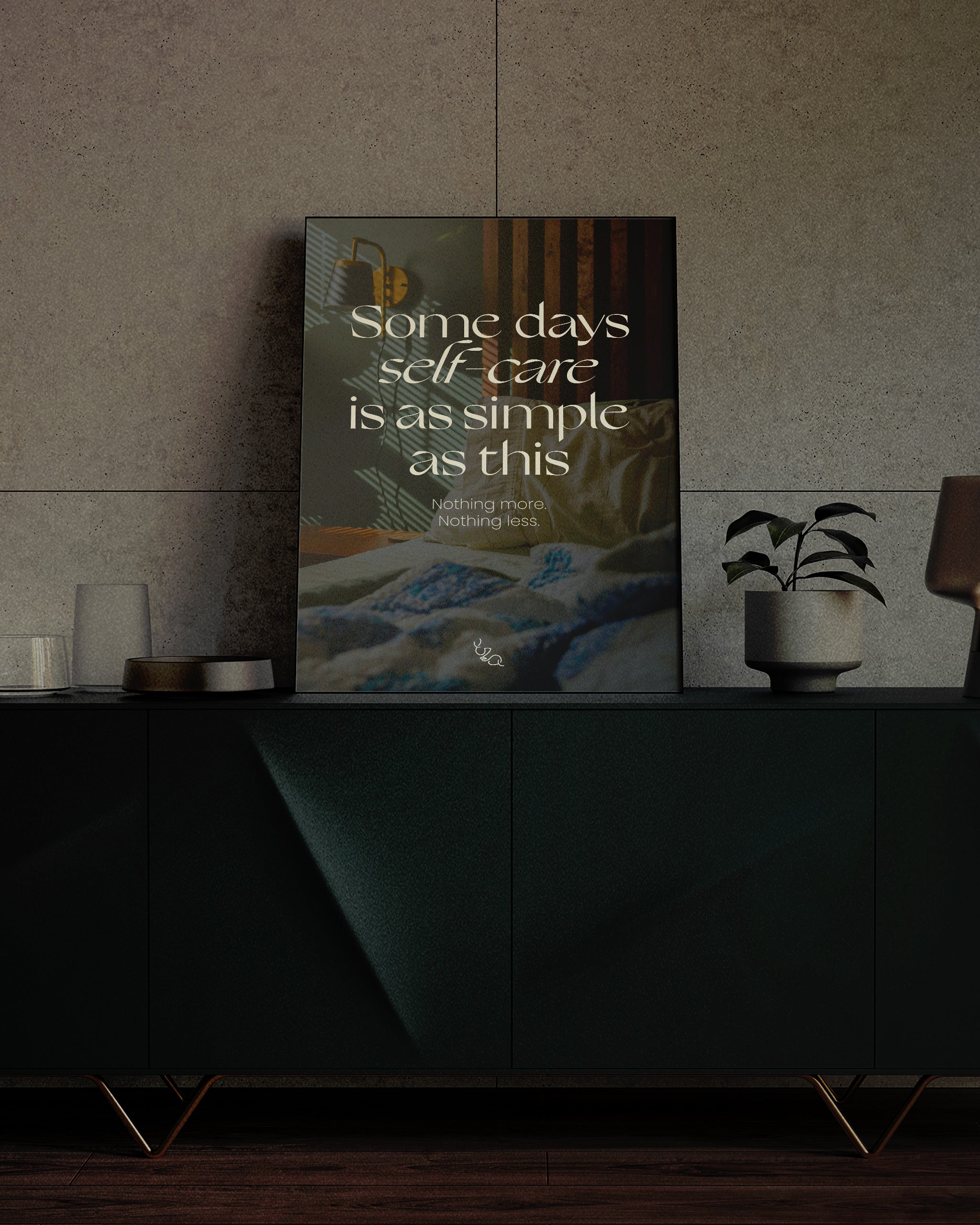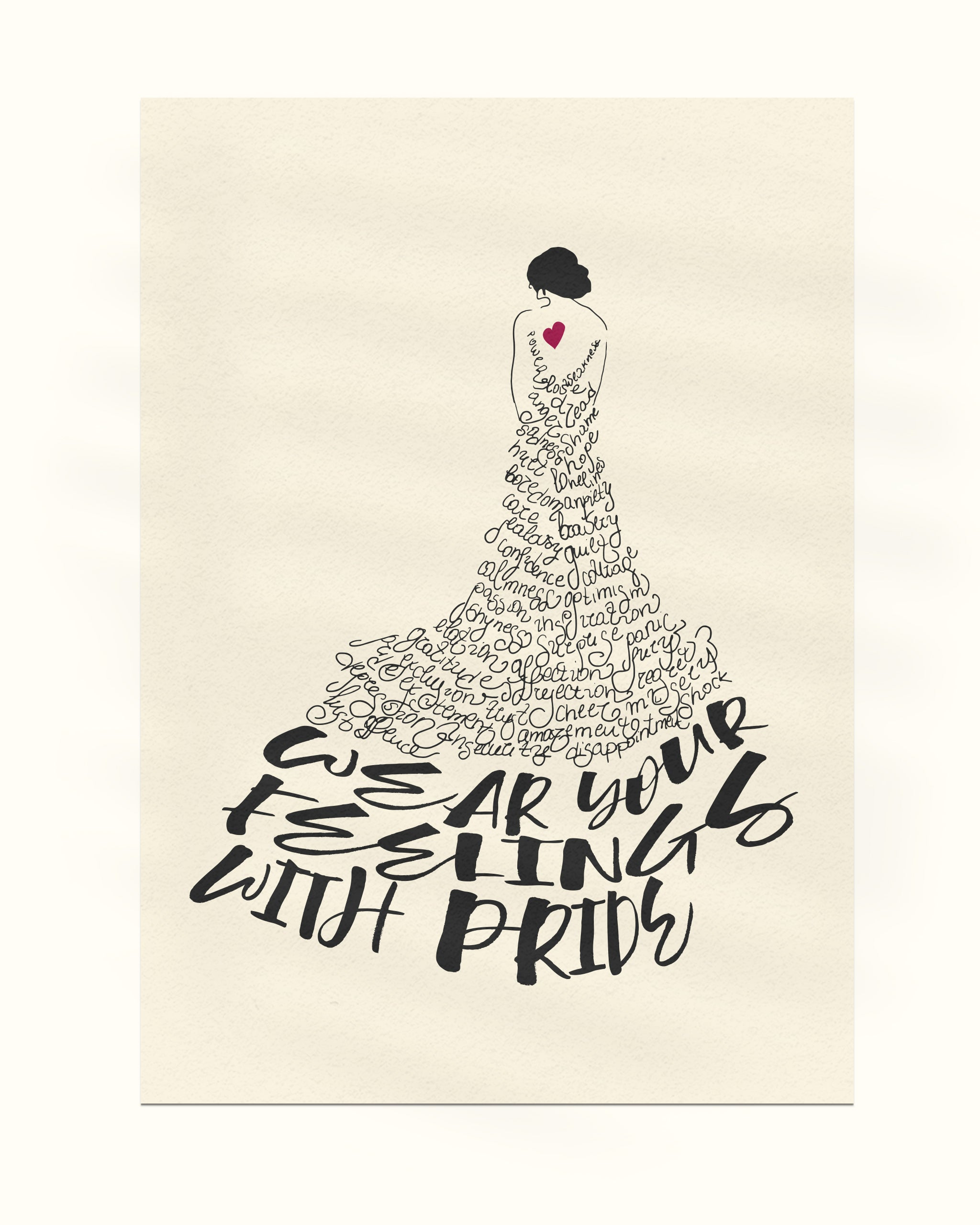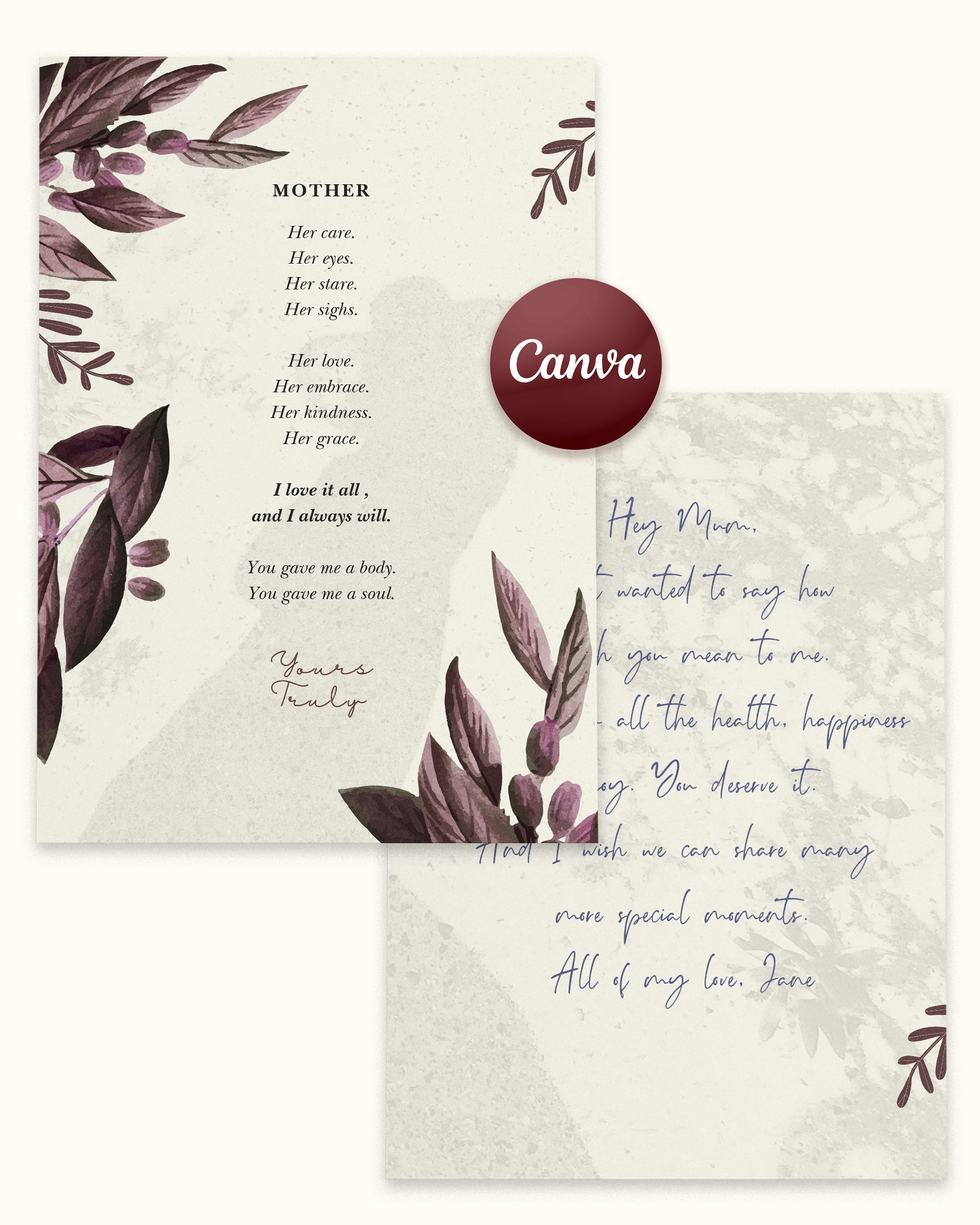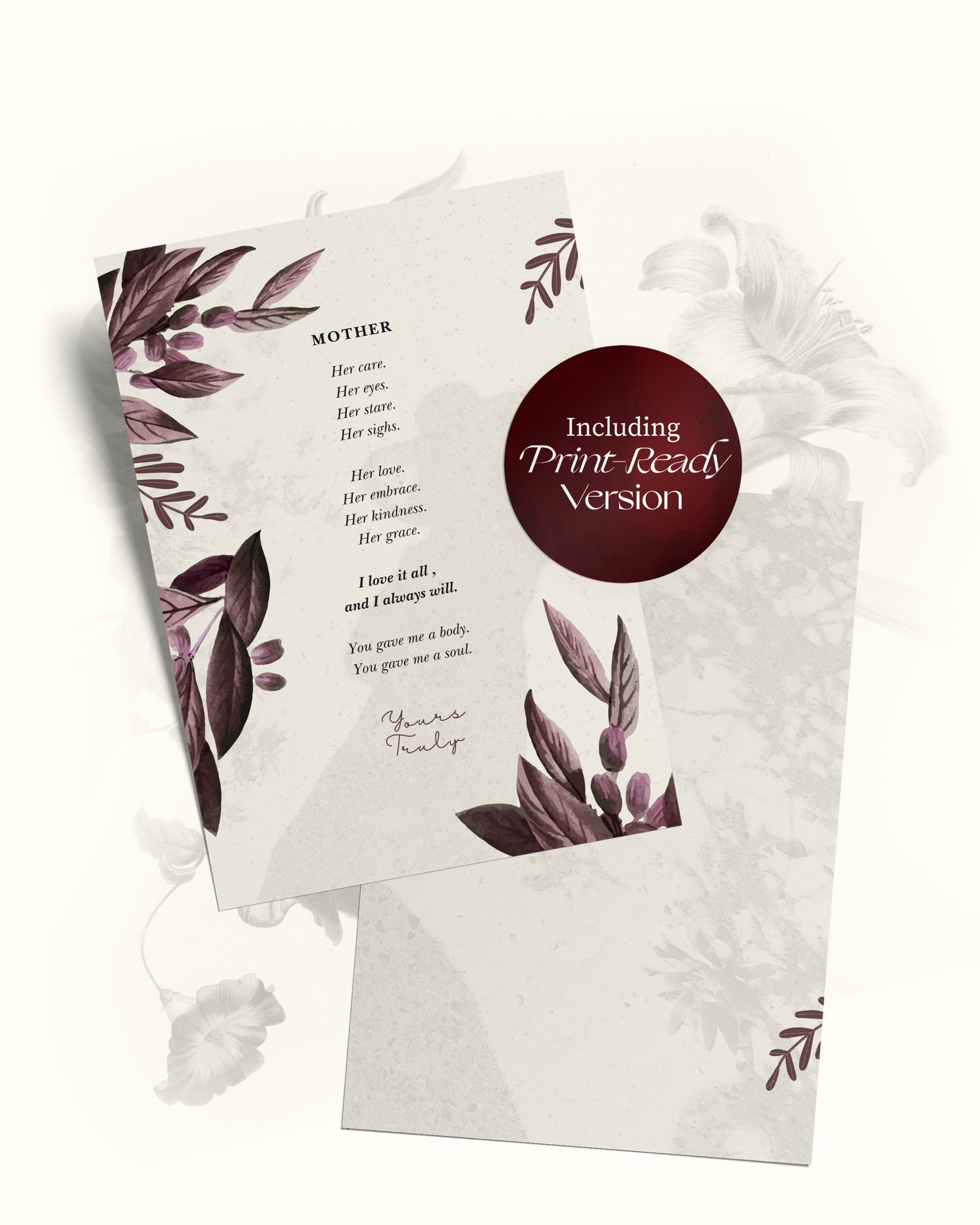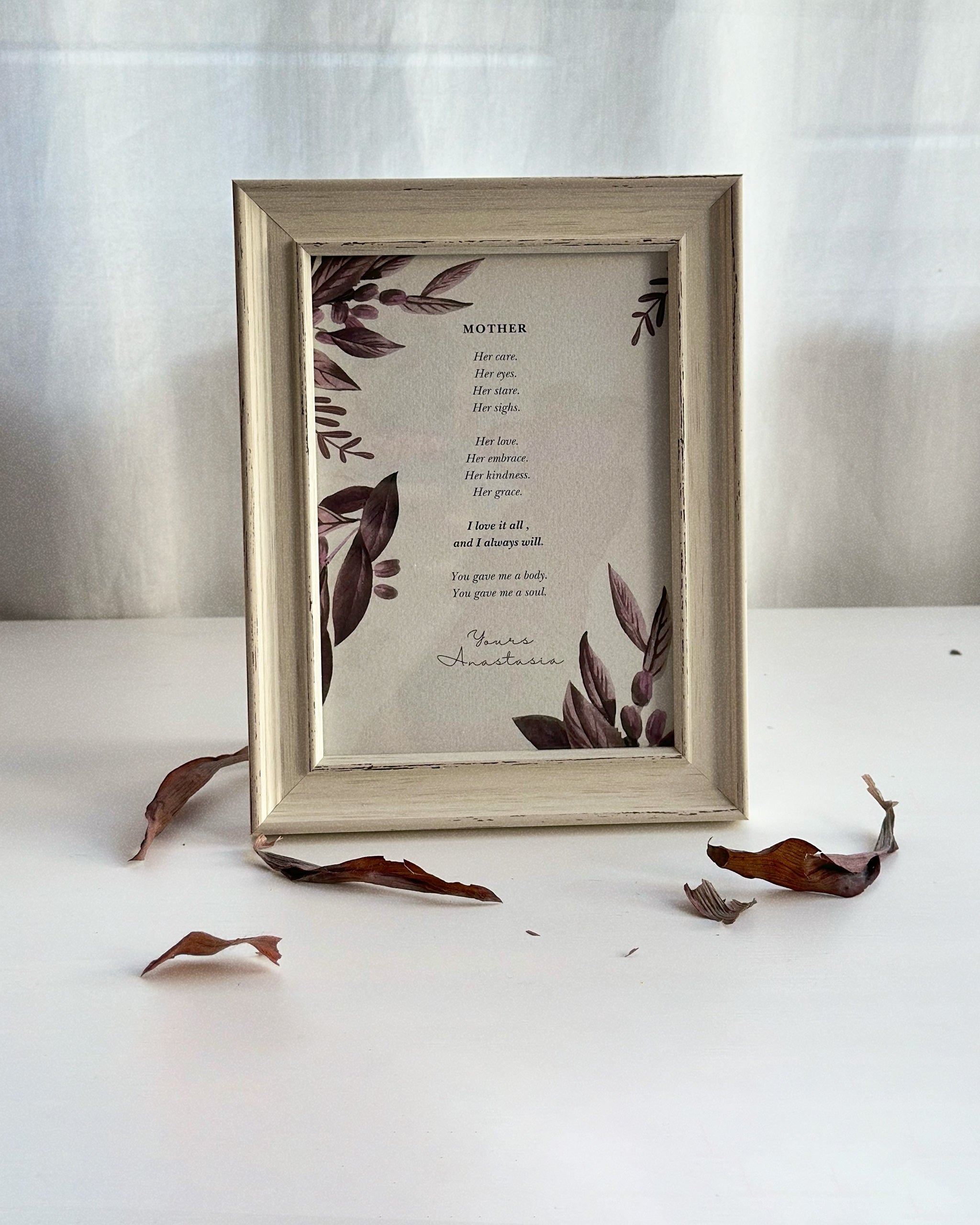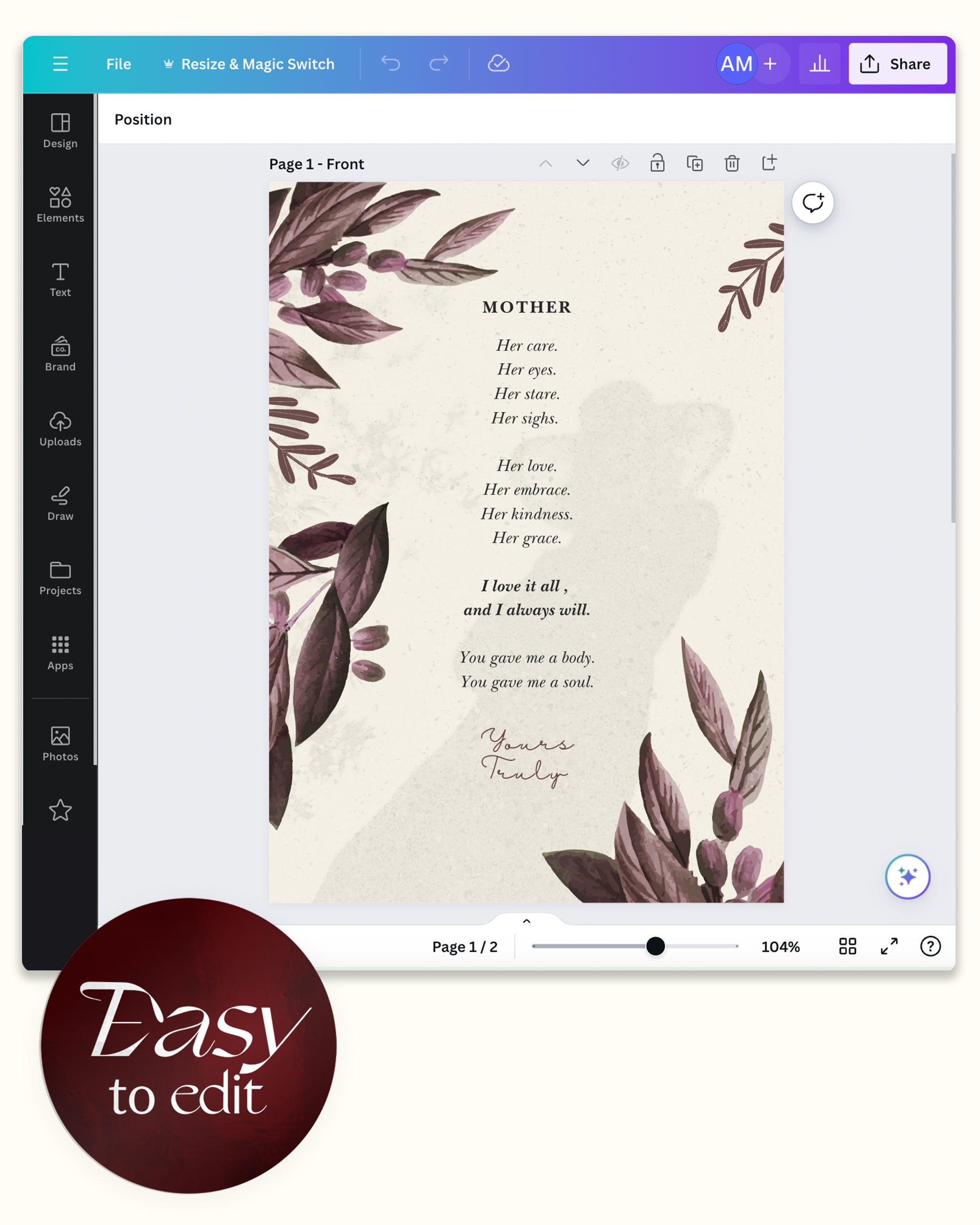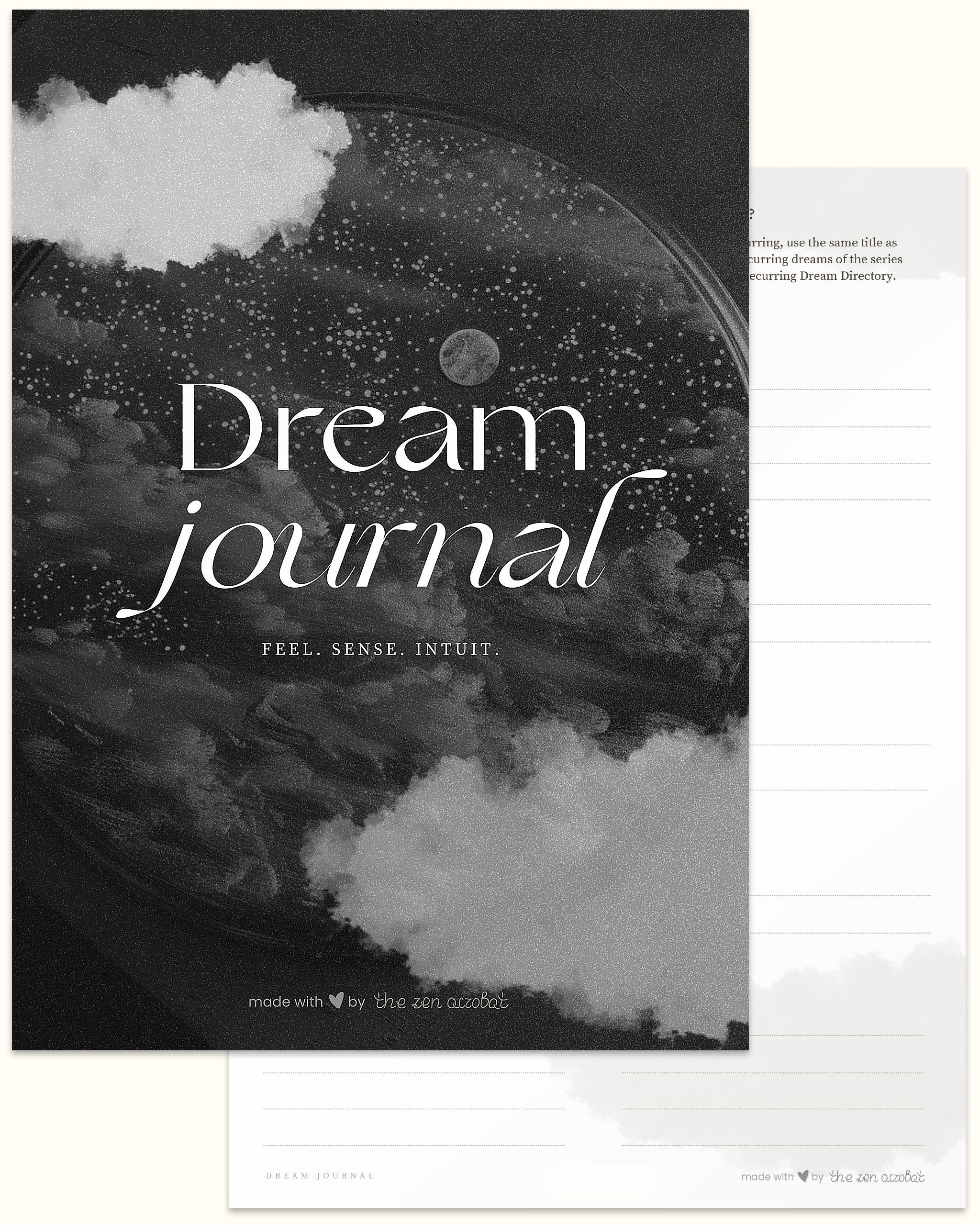1. It’s okay to say ‘no’ to a loved one, a colleague or my boss. I’ve exhausted all of my resources for today.
Let me paint this self acceptance quote as a visual metaphor for you:
Picture it like the seasons changing: after the vibrant intensity of summer, when we’re radiant and brimming with energy, autumn invites us to wind down. We exchange sunny days for cozy sweaters, fluffy socks, nourishing meals, and comforting company—even if it's just our own. The landscape transforms into shades of amber orange, ochre yellow, mossy green, and rich laguna-blue skies, bringing nostalgic joy and long-forgotten feelings.
Similarly, sometimes our resources—mental, emotional, or physical—become depleted, and that’s the time to allow ourselves to slow down and honor our boundaries; to gently say 'no' when we feel we have nothing left to give.
We often forget that people are usually understanding when we openly share that we are overwhelmed. Sometimes we feel obliged not to disappoint or hurt others, even when there's little chance of that happening in reality. This article in Club Mental makes a very good remark on this:
“It’s never wrong to set limits, ask for what you need, and take care of yourself…even if others think you’re being selfish, mean, or difficult. Boundaries are about protecting your well-being, not punishing others.”
Saying “no” is becoming more and more important as the phenomenon of burnout is at an all-time high, affecting different areas of our lives (Healthline).
practical self acceptance tips
What has helped me is listening to my body. When my eyes are too tired from work and I can't absorb any more information, I put on my headphones and relax rather than watch TV. If I need to retreat into my thoughts and can't handle additional external input, I might reschedule, cancel a meeting, or opt for an audio call. Or if I definitely need to do it (because sometimes things aren’t optional), I will try and take out as many pressures as I can for the rest of the day or take it extremely light the next one. I know many of you would say: “Yes, but I have nothing to de-prioritise. My life is a constant whirlwind of tasks and little “musts”.” Again, it depends, there are sometimes periods of our lives that might feel like that, but if this is chronic, the body and mind will need to balance it out at some point. Even if it’s forcefully through extreme fatigue, low motivation or sometimes even a cold.
So, yes, remember it’s okay to:
- Cut a call short because you feel overwhelmed.
- Say 'no' to catch up with a family member or friend because you need your headspace.
- Decline an extra task at work.
- Turn off the TV when you can’t take any more visual or audio stimulation.
Even when our desires are boundless, our resources are limited.
By respecting this,
we respect ourselves
further reading
For extra tips, I found the following resources very useful:
- 5 Boundaries You Must Enforce for Better Mental Health
- 5 Signs You’re Headed Toward Burnout — And How to Stop It
(the headlines sound a bit too dramatic for my liking, but the advice is sound)

2. It’s okay that I feel stressed out today. My inner urgency tried to persuade me to go above my limit.
I can’t count how many times I’ve heard things like “Just don’t stress it” or “Why not take it easier?” And while I know these words are well-intentioned, they somehow miss the point. Sometimes, the drive to achieve perfection, get everything done, and excel feels stronger than the voice of reason and self-preservation.
This article by PsychologyToday gives a very good insight into why perfectionism is blossoming in today’s society, especially in people with upbringing that nurtures the perfectionist tendency : “More broadly, perfectionism could be seen as a consequence of a cultural fetishization of productivity, efficiency, and, yes, perfection. In a culture based on competition, perfectionism in those with a tendency for it may be inevitable. If only we could all just strive for excellence without judging ourselves too harshly when we fall short, we could become “good enough perfectionists,” always trying our best but remaining gentle and forgiving with our fragile selves.”
practical self acceptance tips:
What has helped me in times like this is not shaming myself for this “preposterous lack of self-love”, but first, simply accepting it. Then, ideally with the help of therapy, trying to understand why I feel the need to push myself so hard. To understand this inner urgency. And from then on, to start building a new sense of self esteem and self worth by acknowledging that:
I am more important than any task or anyone’s opinion of my abilities. I’m learning to live with the discomfort of not finishing everything, knowing that others may,
well,
see that I’m also a human.
further reading
For a thorough review on perfectionism,and its healthier alternative - excellencism, I definitely recommend:
Why Perfectionism is a Trap
If you like this quote, you can get it as an iPhone Wallpaper

3. It’s okay not to move today. I feel like my body just needs to rest.
Recently I’ve been noticing how most of the wellbeing/fitness coaches around here try to motivate by instilling a sense of blame. Yes, it is sometimes motivating to hear things like:
- Push It. Your Body Will Reward You
- No Excuses. No Pain - No Gain
- Wow. I Really Regret That Workout. Said Nobody. Ever.
And while they do help in some situations, I find that they are a bit extreme, shameful, and toxic in others.
I've worked out for the past 8 years of my life and have gone through the full shebang: from high-intensity "push-your-limits" interval training to 2-hour-long weight sessions, all coupled with insane amounts of daily steps.
And let me tell you, I’ve frankly regretted some of these workouts because I did them “at all costs.” I did them when I felt like I had no headspace and didn’t want to move, or when I wanted to prioritize something else in my life. It was pretty much an “all or nothing”. My diet will be overly clean for a period of time and then I will go on holiday and compensate by having way too much food and constantly feeling unwell. The body (and mind) just don’t work well with extremes and absolutisms. They’re simply exhausting.
practical self acceptance tips:
We’re human; we have this limited amount of energy that we try to masterfully divide between all areas of our lives.
And if sometimes a workout isn’t what we need, and if sometimes even a 10-minute walk is too much... that’s damn okay.
So, no:
- Sometimes your body will not reward you if you keep pushing.
- Sometimes there’s gain without pain.
- Sometimes everyone and their dog says you will regret that workout, and that’s perfectly fine.
Because...
- You always come first.
- And absolutisms are just crap.
I want to mention a few accounts that I feel make the fitness/wellbeing space a lot less toxic online and have personally helped me in my journey:
- www.instagram.com/danaemercer
- www.instagram.com/aliceliveing
- www.instagram.com/bdccarpenter
- www.instagram.com/michaelulloapt
They debunk wrongful and harmful information on health, eating, fitness, and body image regularly.
I also want to mention that Jameela Jamil’s (activist and a female extraordinaire) new project @moveforyourmind, aiming to create a safe space for everyone to experience the power of movement for *every* body, where movement is more about joy than punishment. I will definitely be following where she goes with that, because I think we need to slowly start shifting the view of exercise towards something healthier, a lot less aesthetic and rigid.
If you like this quote, you can get it as an iPhone Wallpaper

4. It’s okay not to be able to make the perfect choice. In a world that drowns us in small choices, good enough will do.
One of my daily struggles as a recovering perfectionist has to do with choices. And modern society, with its overabundance of options—from what yogurt to pick to what country to move to—has made this even more difficult.
It's almost impossible to make a mindful decision about everything, just as it is to make a perfect one (if that animal even exists).
practical self acceptance tips
So, when it comes to making decisions, I've started doing the following things…
1. Feeling my “overthinking” limit
I know I've hit my overthinking limit on a decision when my body starts feeling on edge. That’s why my entry point to every task I perform or decision-path my brain takes me on, I ask myself “How much actual resource I’ve got for this today? How much more important is it than the other things I want to have remaining resources for?”
2. Gauging the urgency
Do I need to make this choice right now? Is it urgent? Do I want to use any more energy on it? If not, I'll let it hang out in my head. If I really want it, time will tell.
3. Trusting my gut
I know that if I truly want something, I wouldn't hesitate—I'd just get it. Which means if I'm wondering, the two options at hand are both "meeeh" to me. So if I really need to make a choice between two “meeeh” things, I’d honor my resource and just pick one. This gradually helps in building self worth and self esteem, because you simply learn to trust yourself.
4. My soothing reminder of the mistake cost.
I’ve always lost way too much resource worrying I’d make a mistake. One time I even imagined thunder hitting a rock when I thought about making a mistake, as if something terrible would happen. However, as I’ve slowly been building trust in myself, I’ve realized that even if I make a massive mistake, I trust myself to handle the situation. There are very few situations in life, I believe, where the big mistake/tragedy results because we’re in full control of a choice. There are a lot more factors beyond our control. Most of us are not heart surgeons performing life-saving surgeries, so mistakes are usually less catastrophic than we imagine.
If you like this quote, you can get it as an iPhone Wallpaper

5. It’s okay to relax into what is happening now. I’ve just been trained to either regret the past or worry about my future.
Ahh…If I could count the amount of times I’ve stumbled upon the words “Live in the moment.” From the tons of inspirational messages online, to the great books of Ekhart Tole and Dale Carnegie, to the words of my therapist, this phrase has been echoing in my head. There are now studies that prove that mindfulness can help with depression, chronic pain, and anxiety (The Harvard Gazette).
This article by Mindful.org outlines mindfulness in a brilliant way:
“It’s estimated that 95% of our behavior runs on autopilot—something I call “fast brain.” That’s because neural networks underlie all of our habits, reducing our millions of sensory inputs per second into manageable shortcuts so we can function in this crazy world...Mindfulness is the exact opposite of these processes; it’s slow brain. It’s executive control rather than autopilot, and enables intentional actions, willpower, and decisions.”
I remember a couple of years back I took them so seriously that I forcefully kept shutting the door to the future, and the one to the past, thinking that sheer force was the way to it. However, in my humble opinion, all change based on solid foundations starts with acceptance and understanding.
Let me put a huge disclaimer that worrying and thinking about the future is normal and human, so is ruminating the past. As with everything in psychology, it’s about the extent. However, If you find yourself unhealthily stuck in the future moment, constantly worrying and calculating everything that could go wrong, and how it should be right, or you can’t help but lose hours in the dusty attic of the past, well…there is a reason behind it. You just need to find out why it happens, and once you figure it out, surrendering and letting go of control becomes a lot easier (I mean, it’s still a helluva feat.)
I wish we could all become fully enlightened and thriving in the present moment, but oh, well. We’re human. And it’s okay if we don’t. I find extreme charm in the messiness of the human experience.
practical self acceptance tips
So, let me tell you my 3 personal tips for staying in the moment:
-
Connect with the senses - sound, smell, visuals, touch - this will inevitably anchor you to the present moment.
(If you wish, I’ve got some mindfulness challenges that help with it, they can pair nicely with any self care journaling you do.)
-
Understand why you feel stuck in the past or in the future - therapy has helped me, but you might have another way.
- Accept it won’t be perfect - I think setting too high expectations to achieve a state of enlightened Nirvana is detrimental. I’ve done it, and I ended up feeling broken. Instead, I see being in the present moment as a gentle practice that I will be “working on” my whole life, and sometimes it will be easier than others. But it shouldn’t be all-consuming.
further reading
5 Simple Mindfulness Practices for Daily Life
Mindfulness over Matters
When Science Meets Mindfulness
If you like this quote, you can get it as an FREE iPhone Wallpaper

closing thoughts
before you get bored of me 😉
My mission with these quotes and in general, with my content, my products (and hopefully my future therapy work) will be to normalize the human experience. Oh, mighty self-acceptance! This is why these short self worth & self love quotes and ideas should be viewed as gentle self love affirmations and fun challenges, but they shouldn’t put any pressure on you. Listen to your own self.
I hope these quotes helped you and stay tuned for Part 2.

